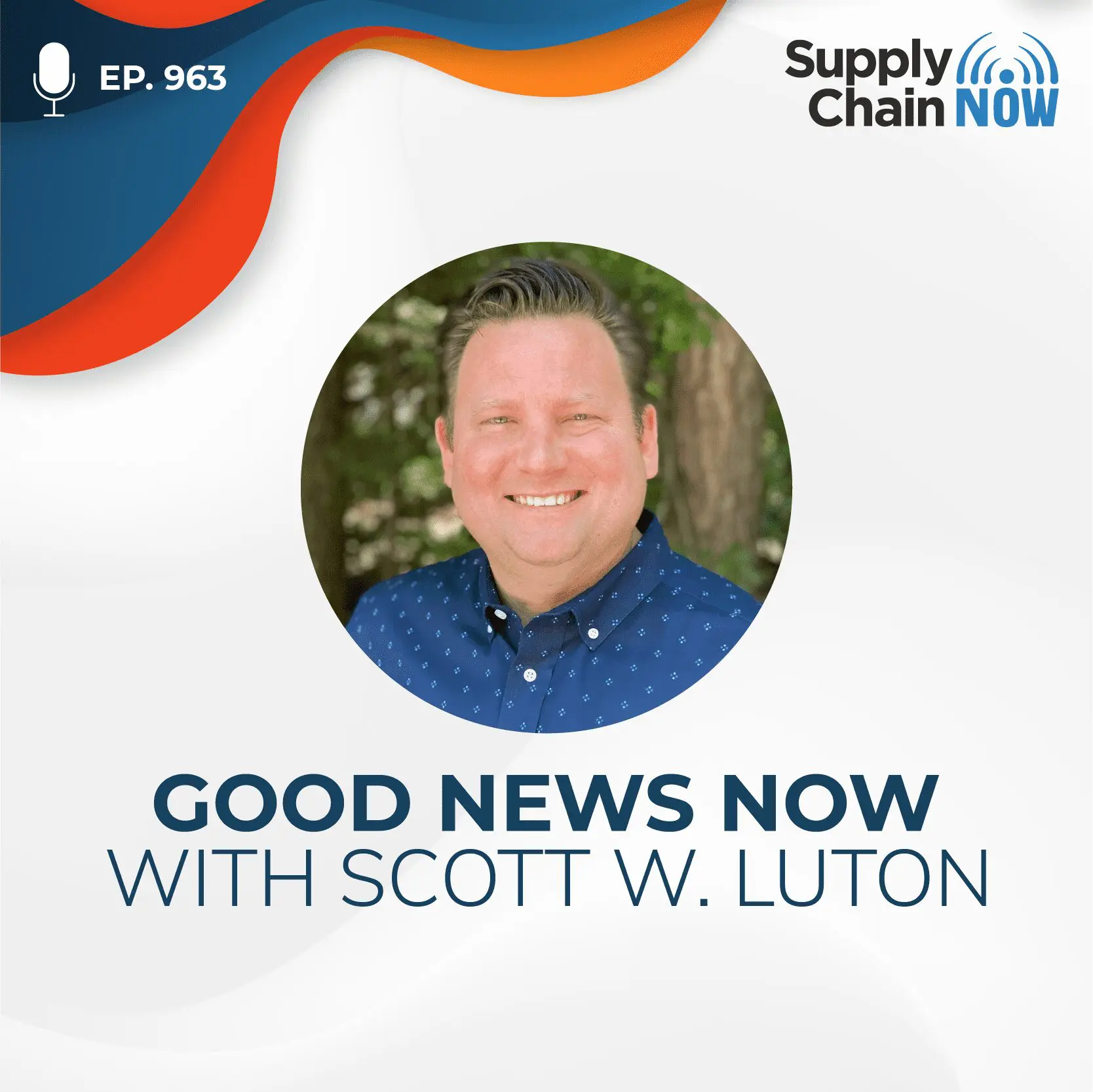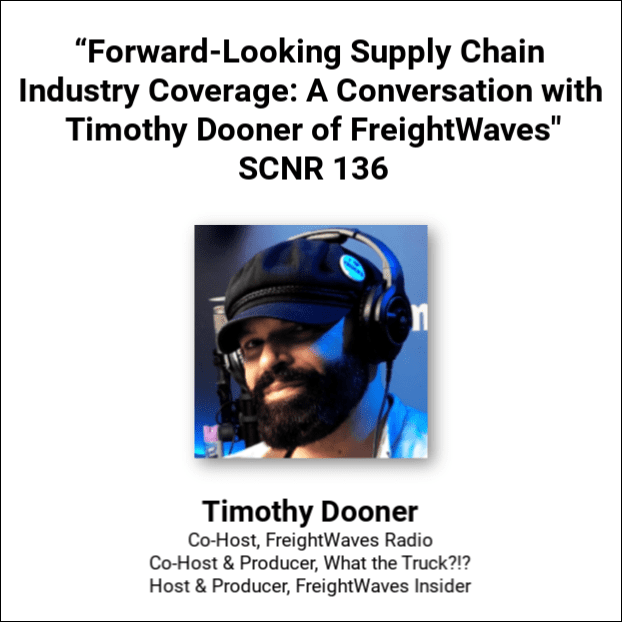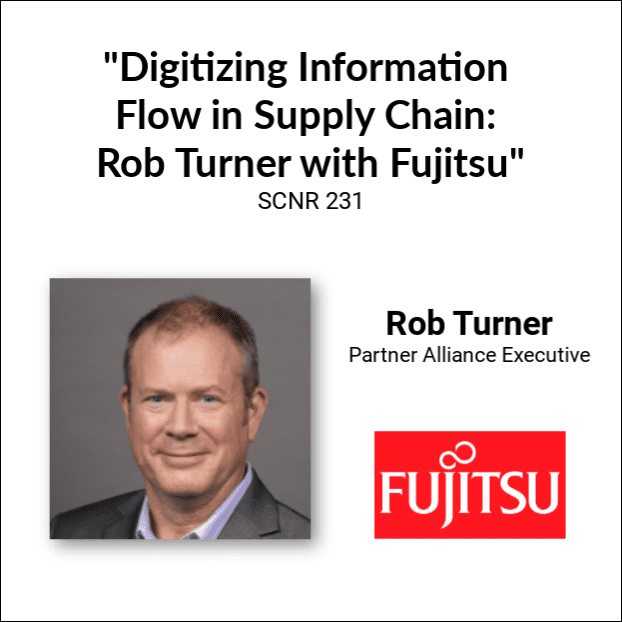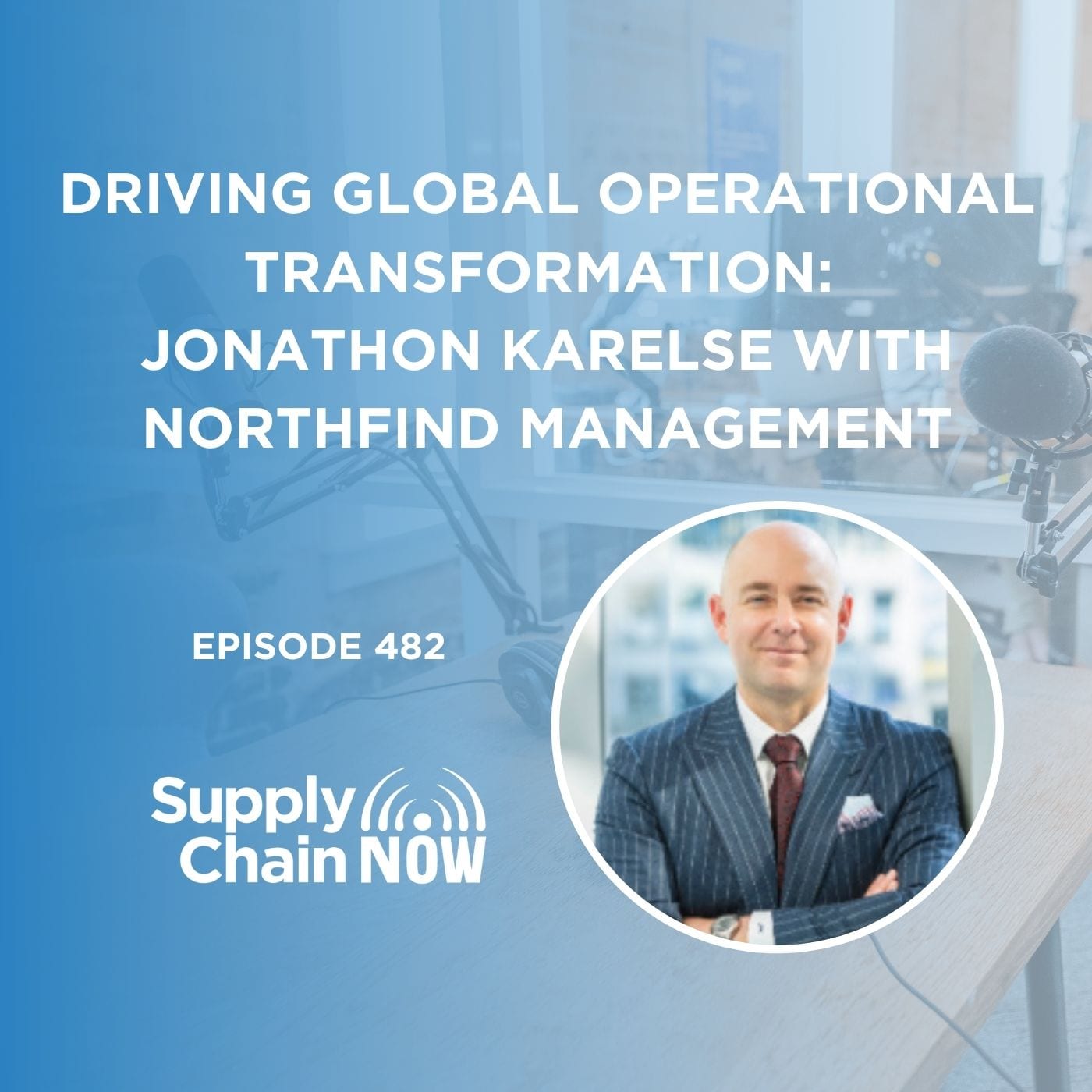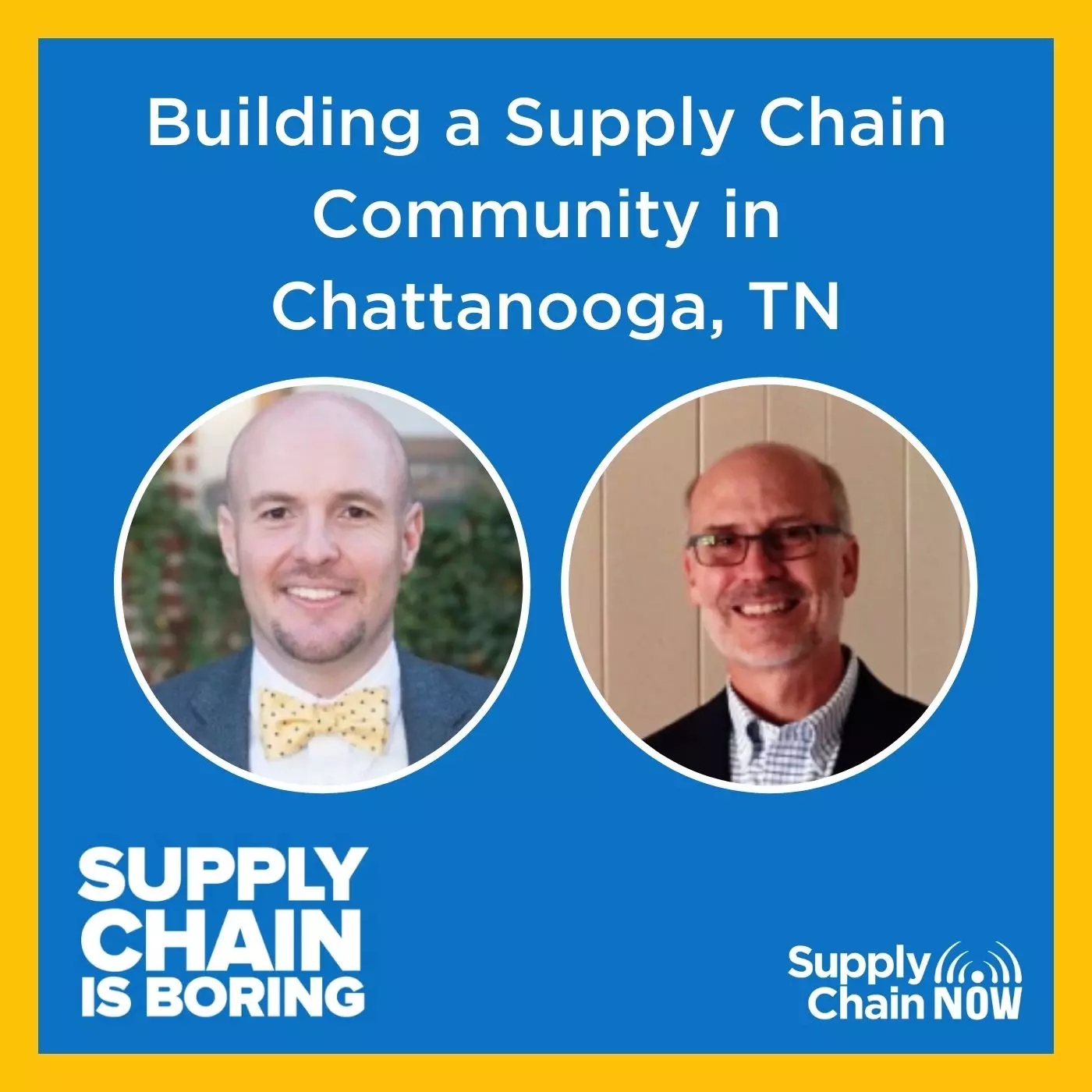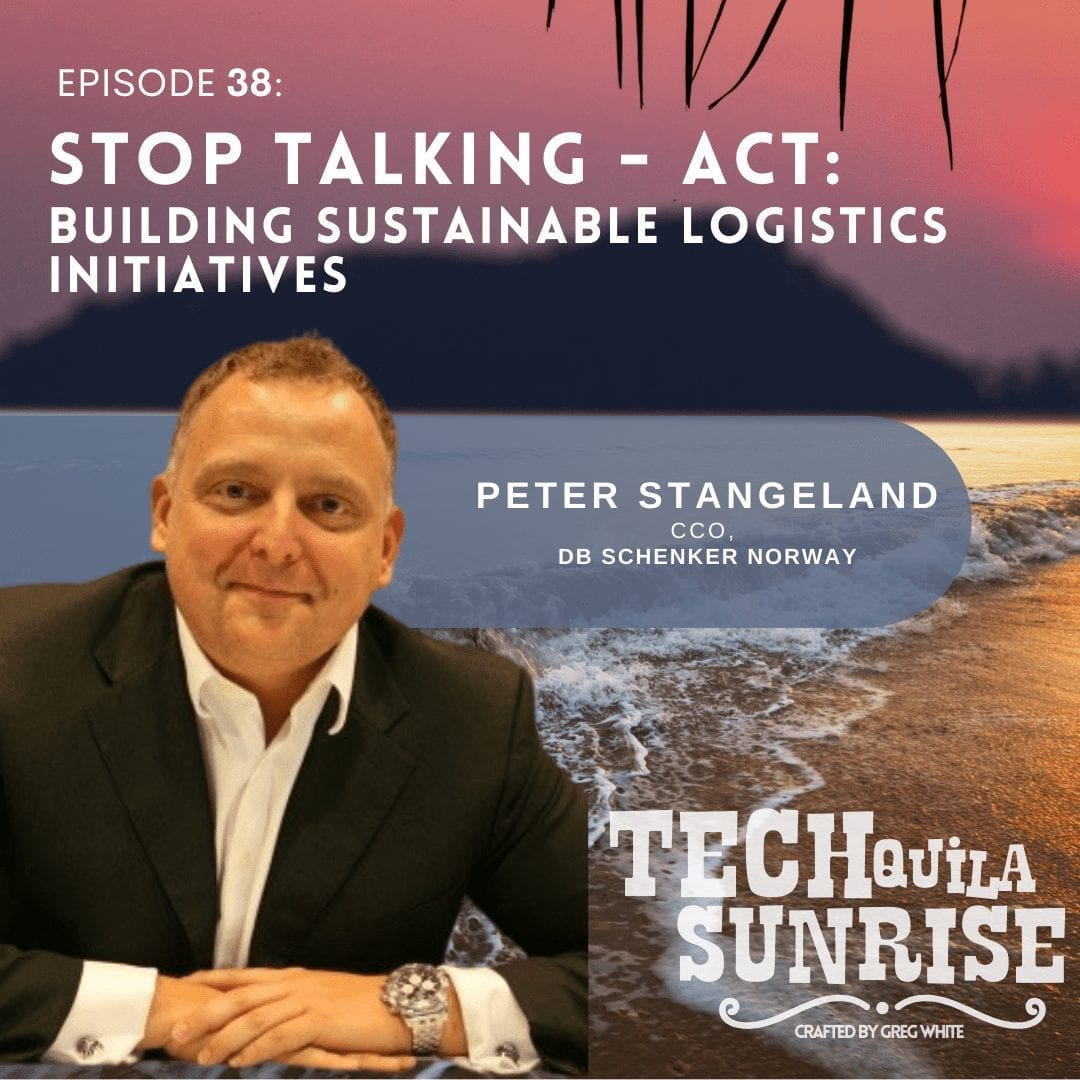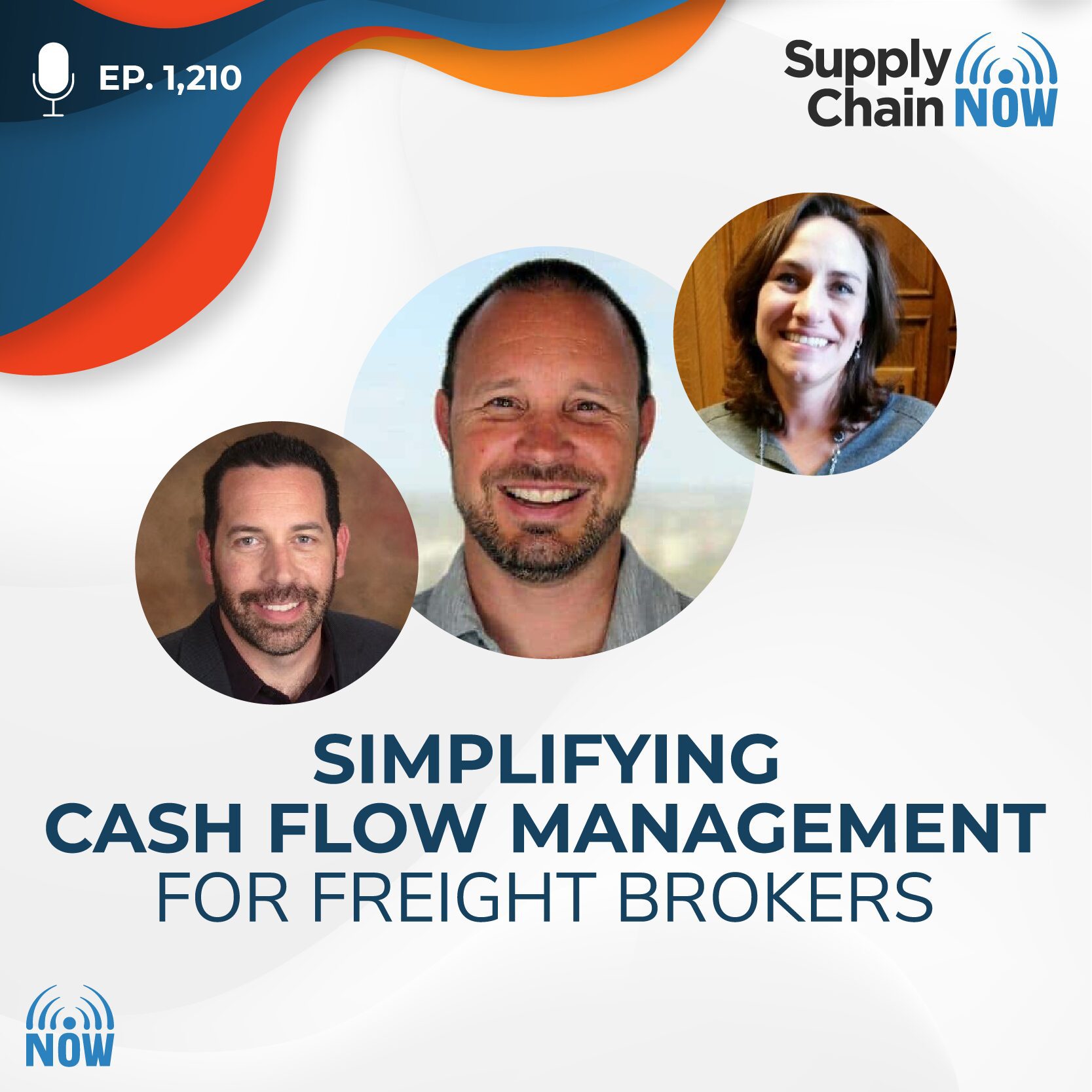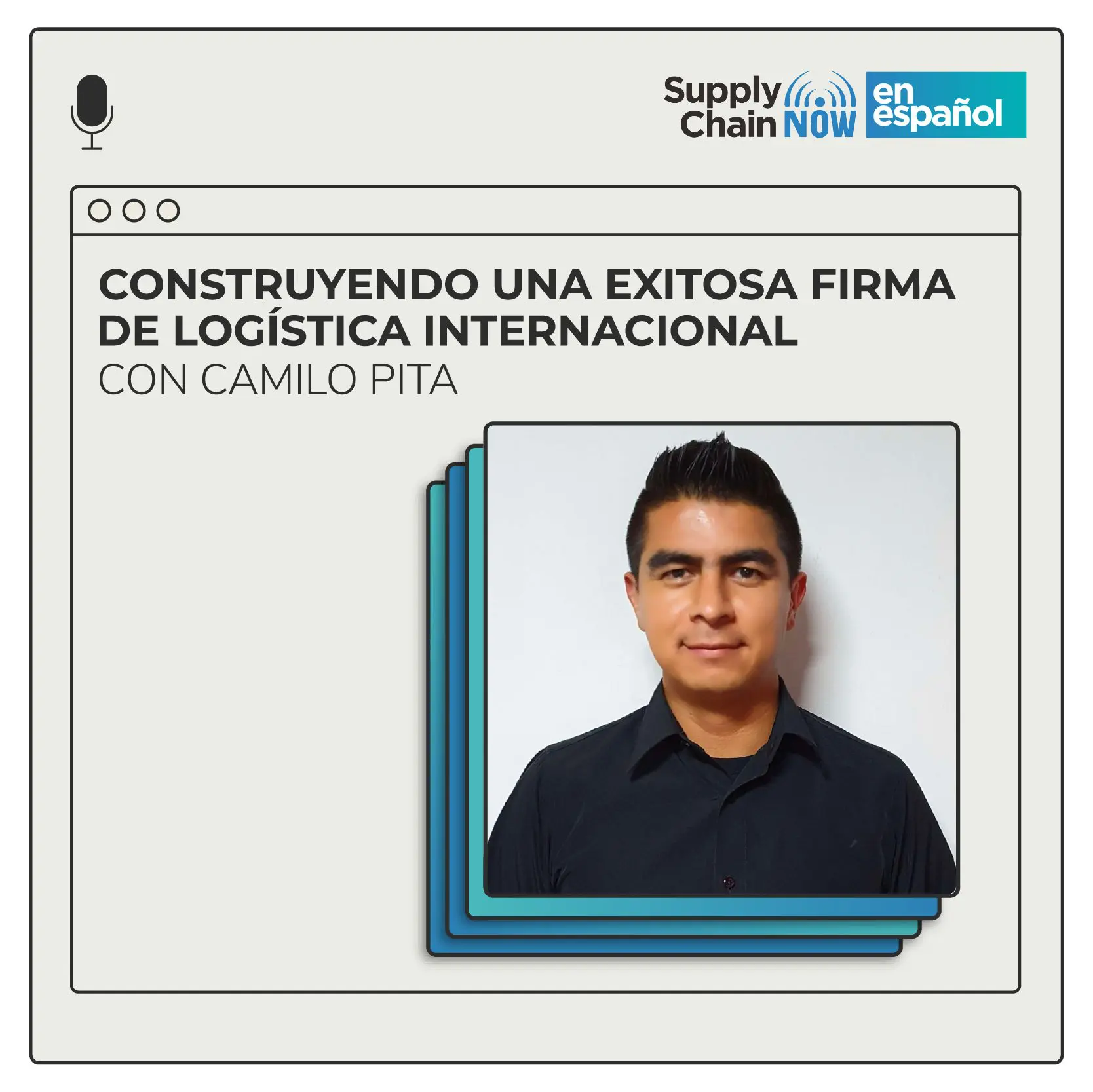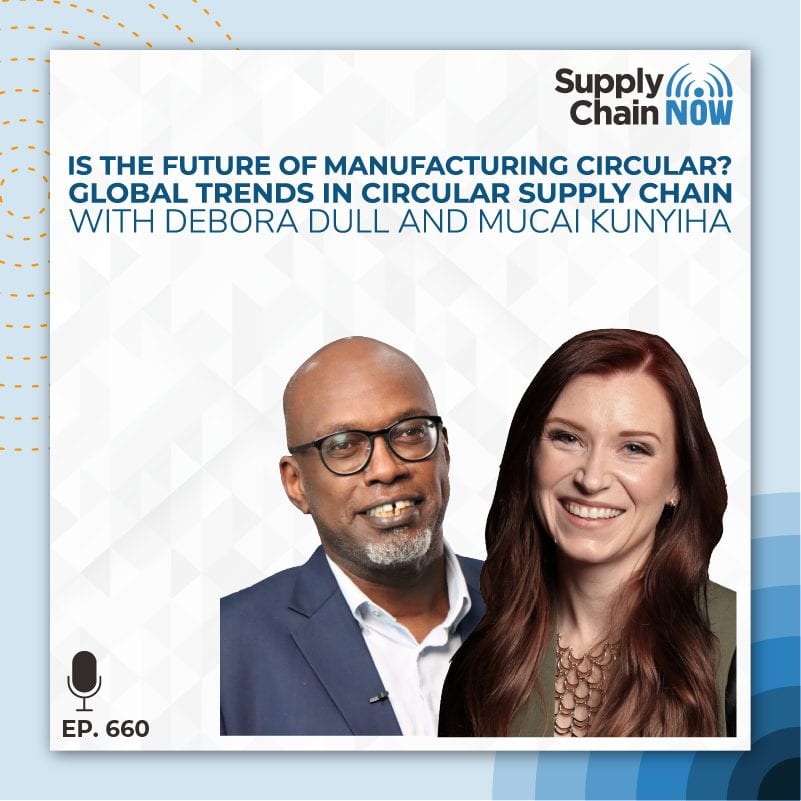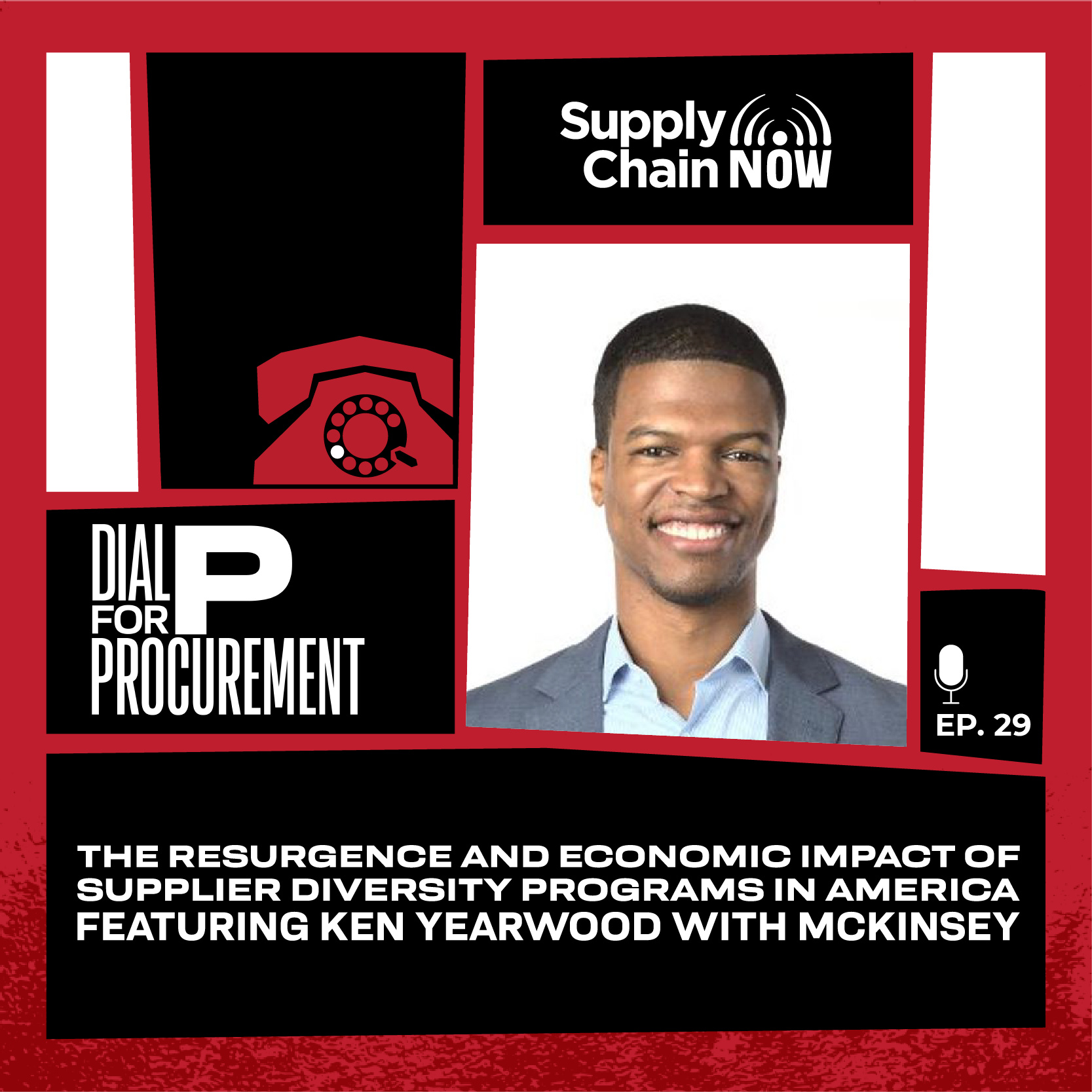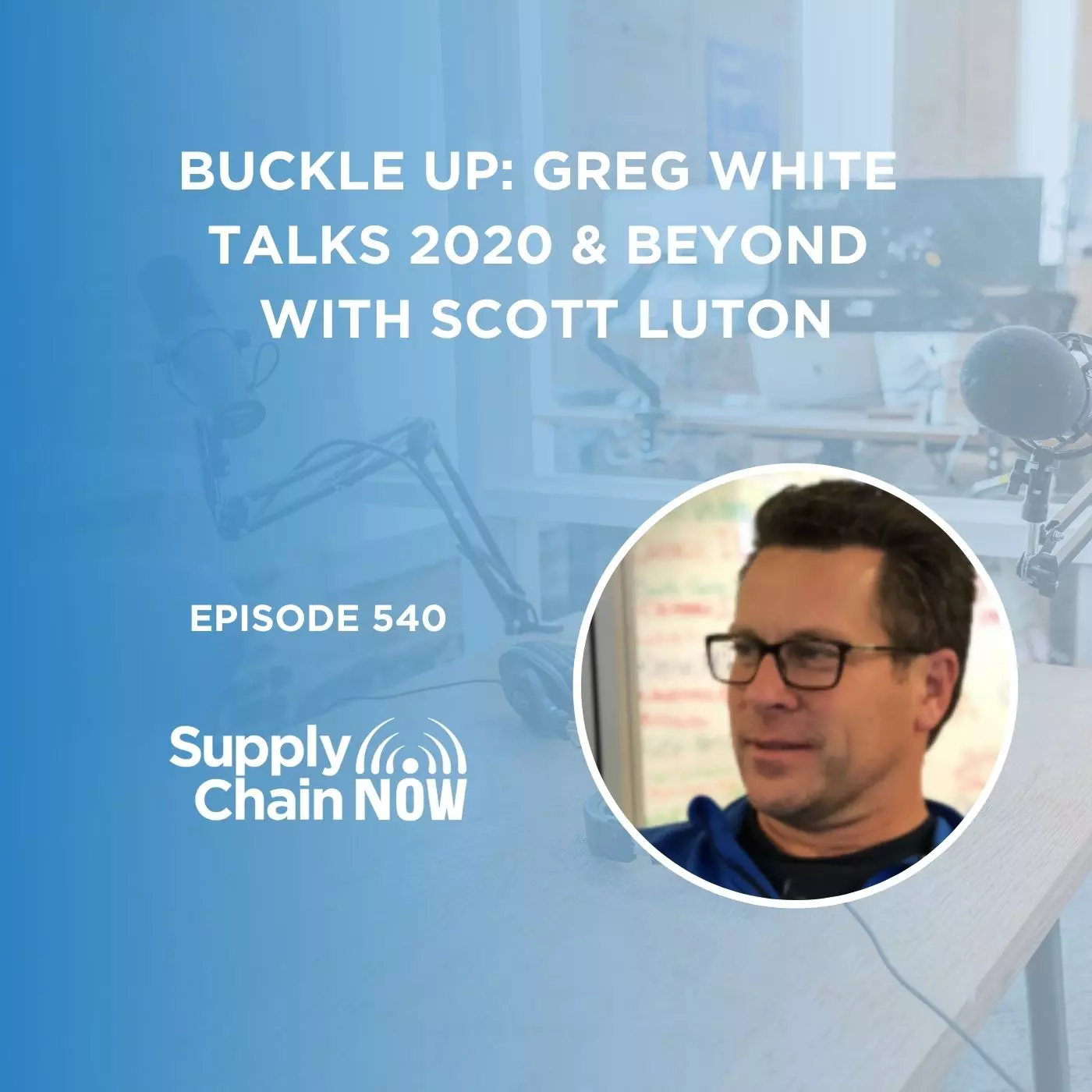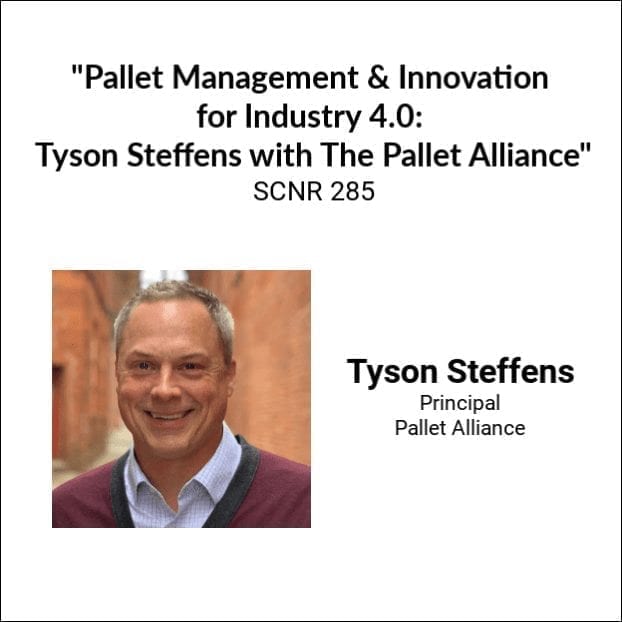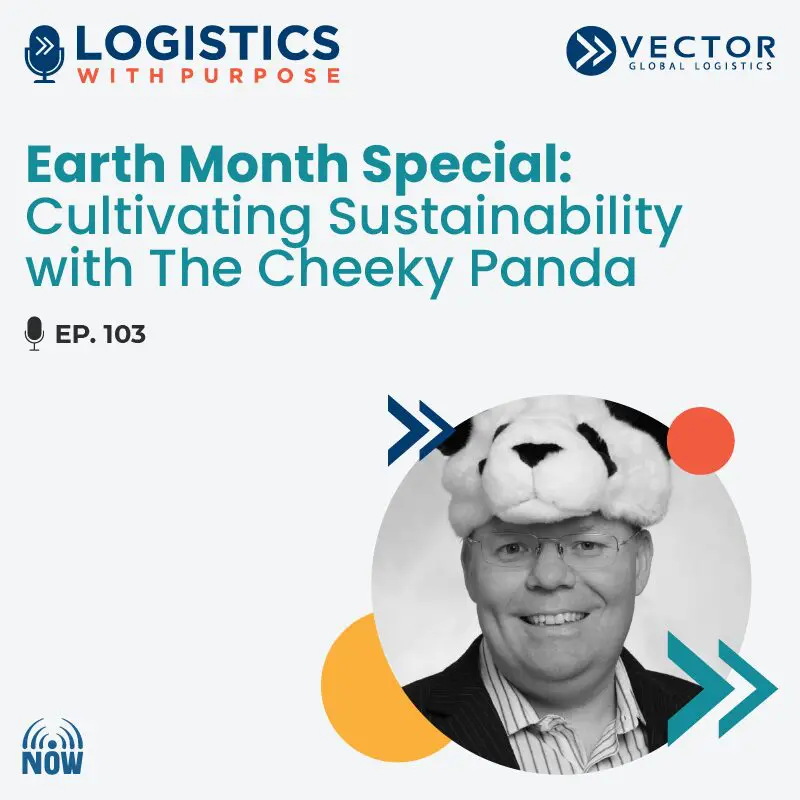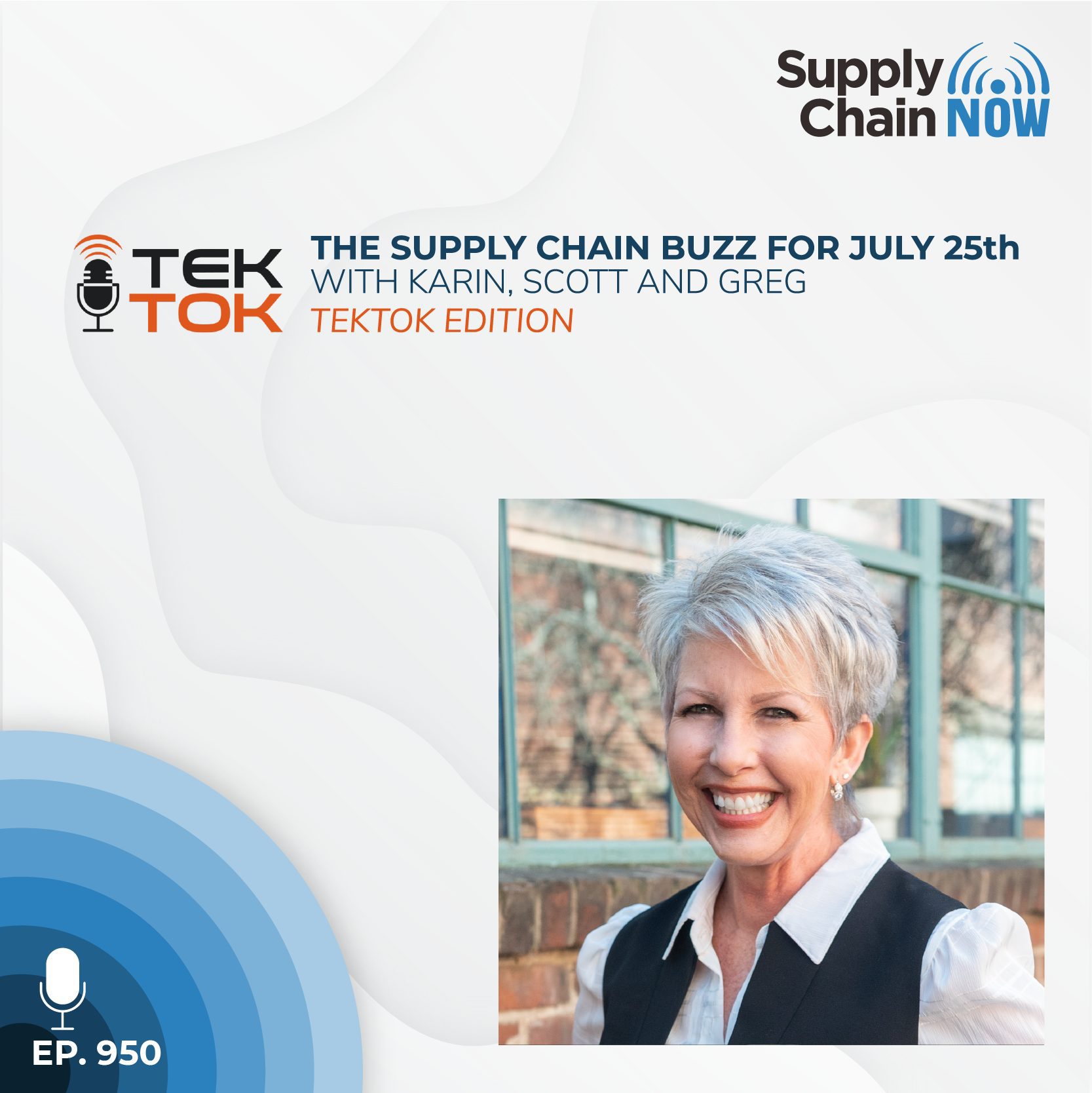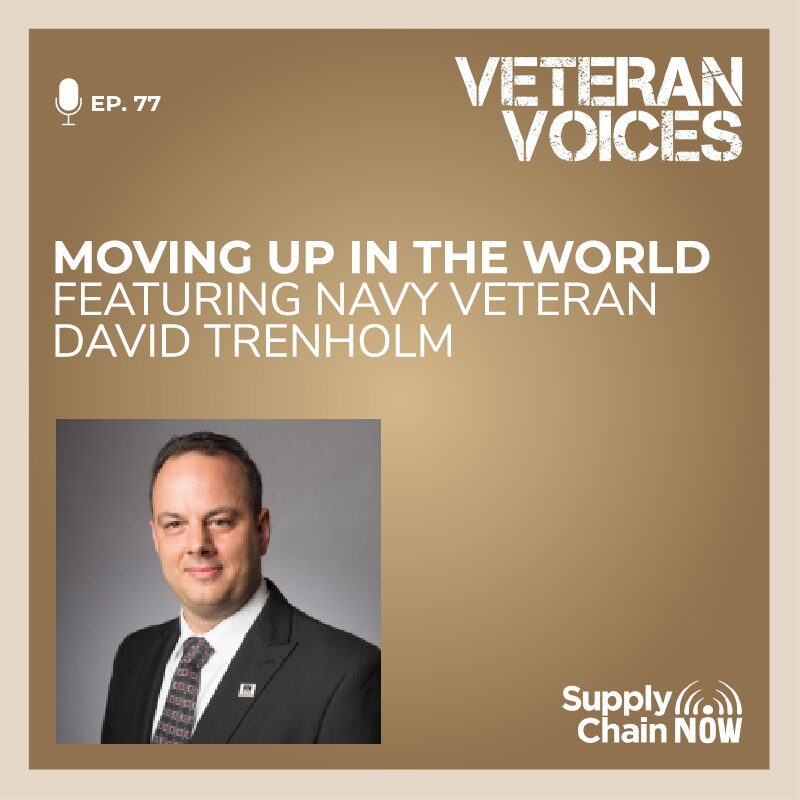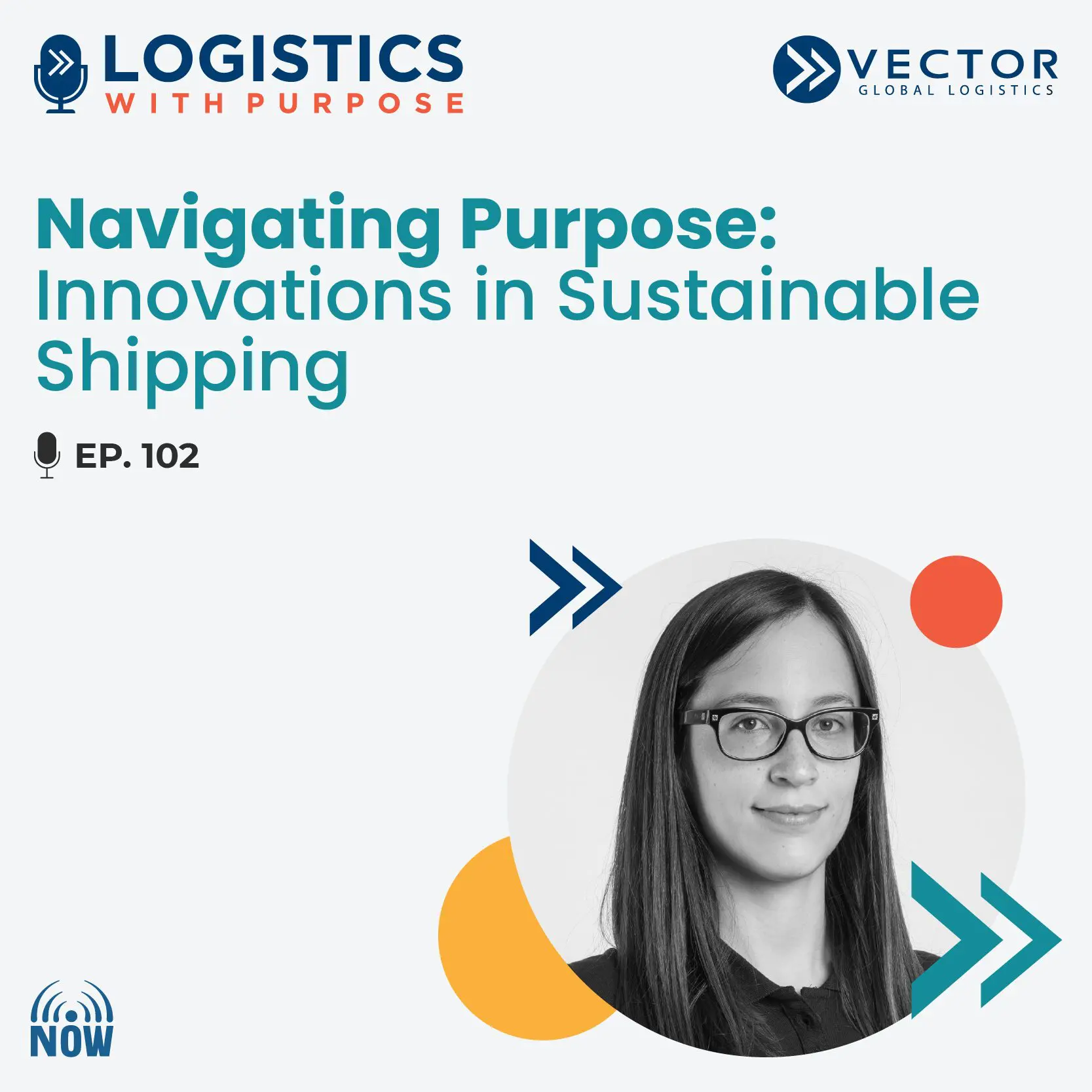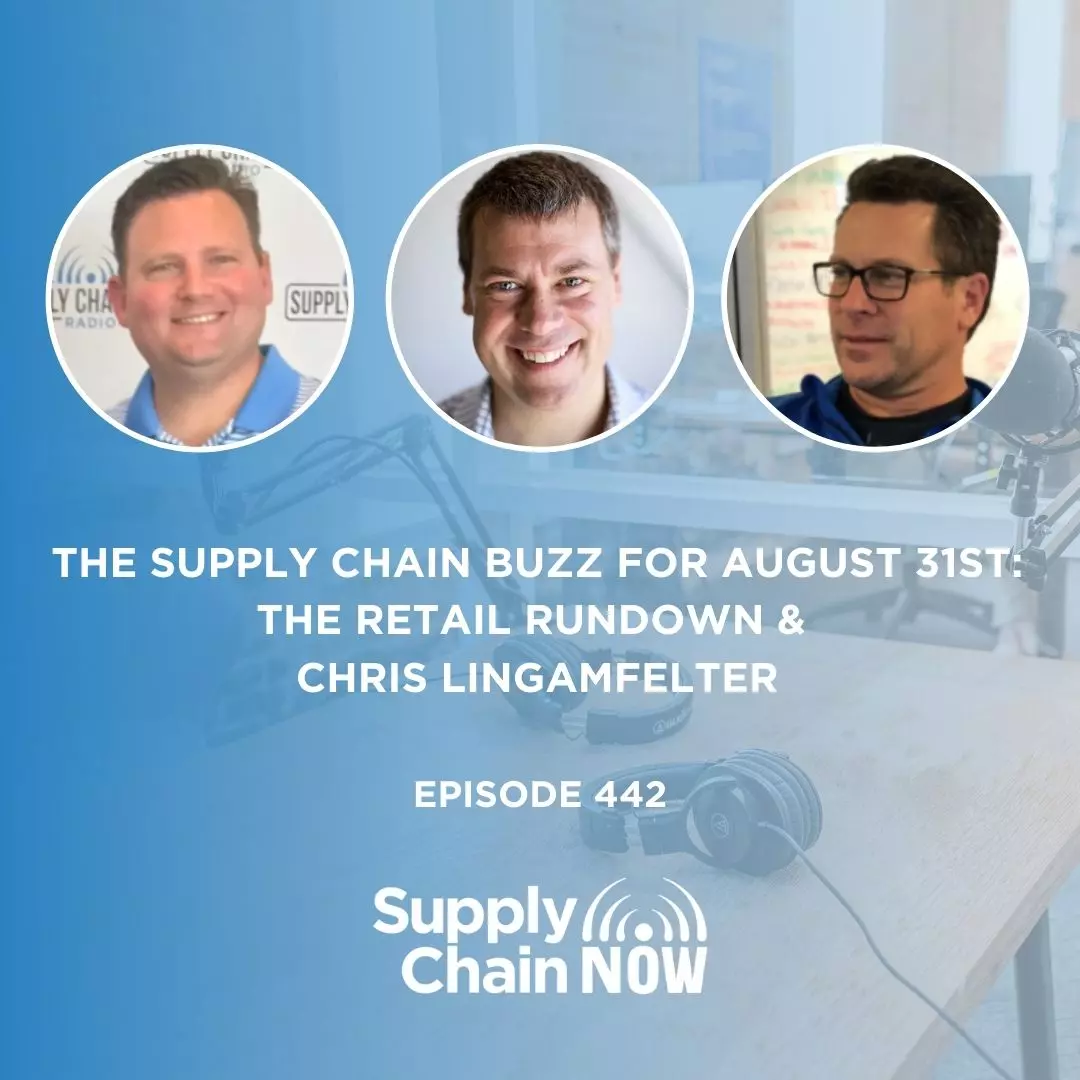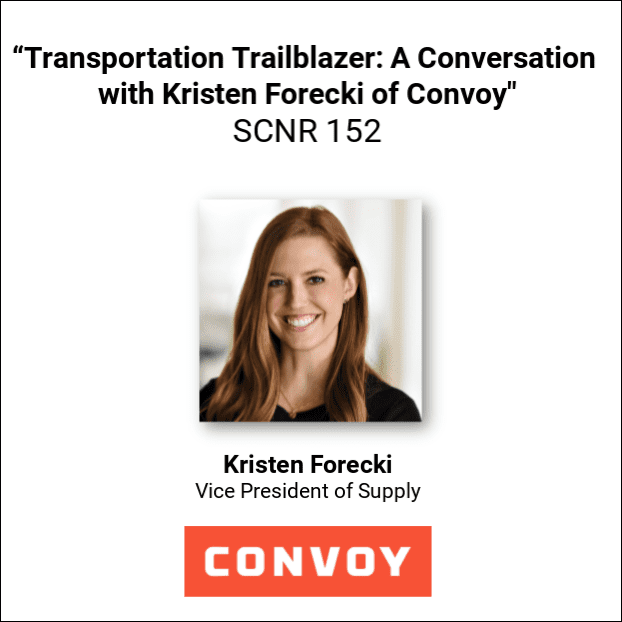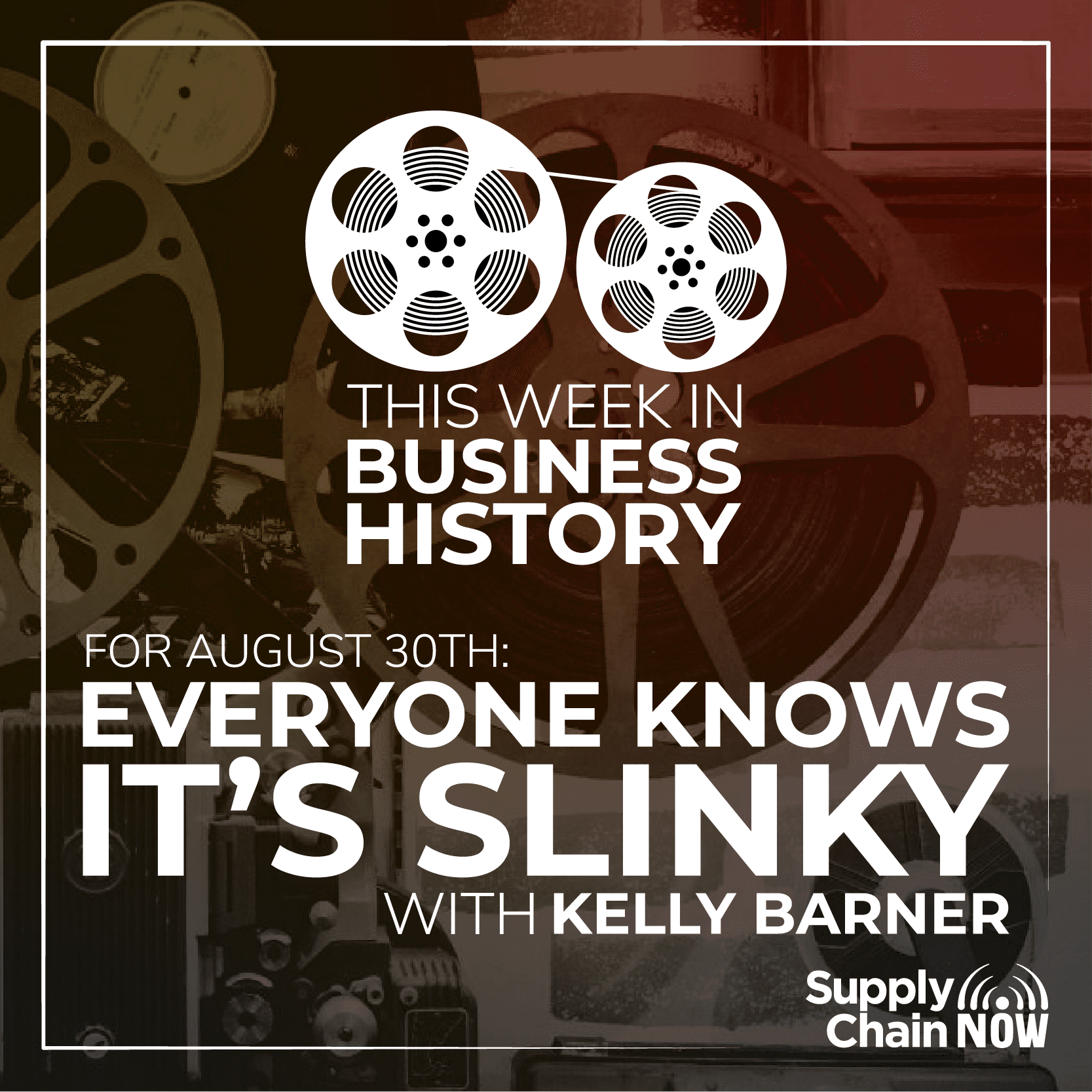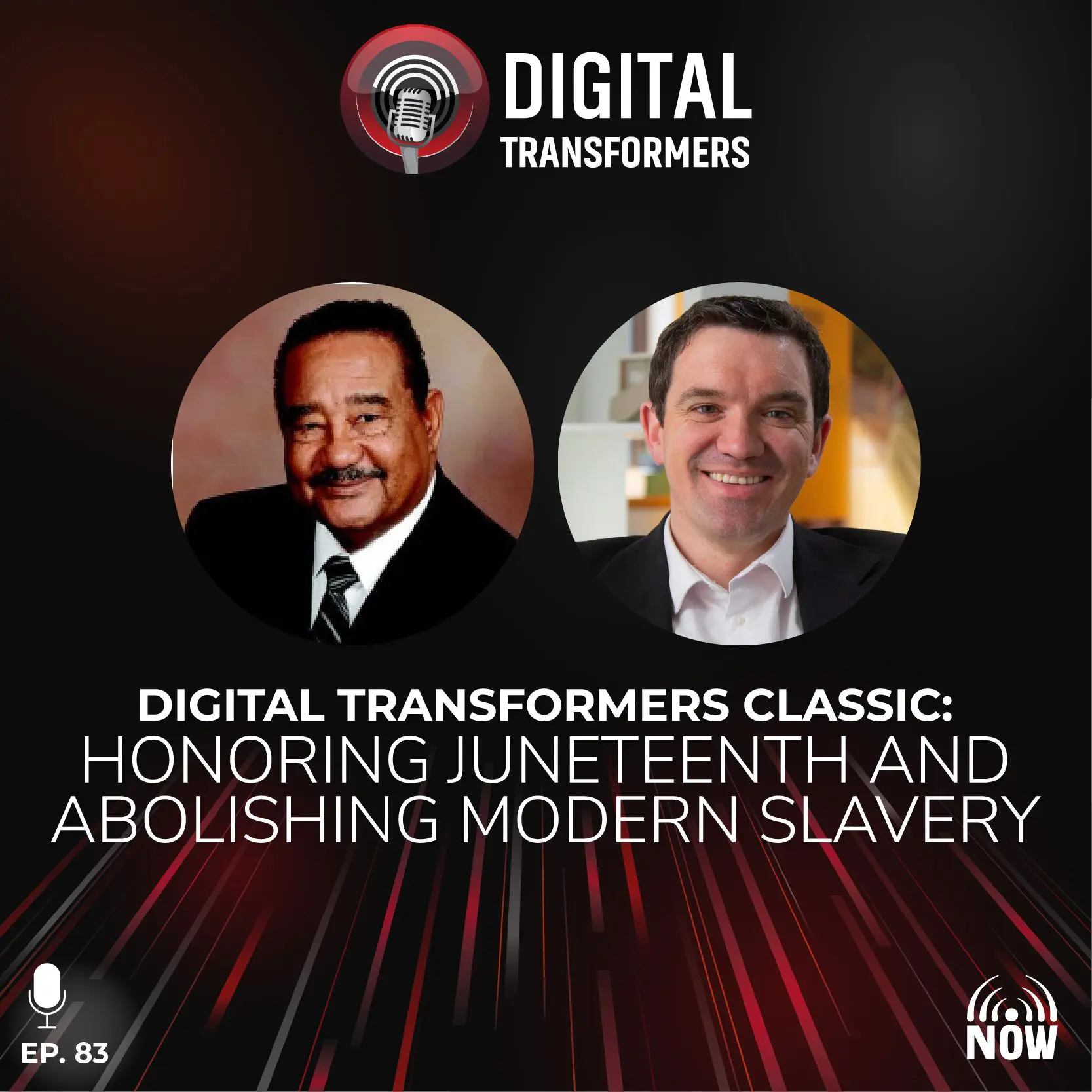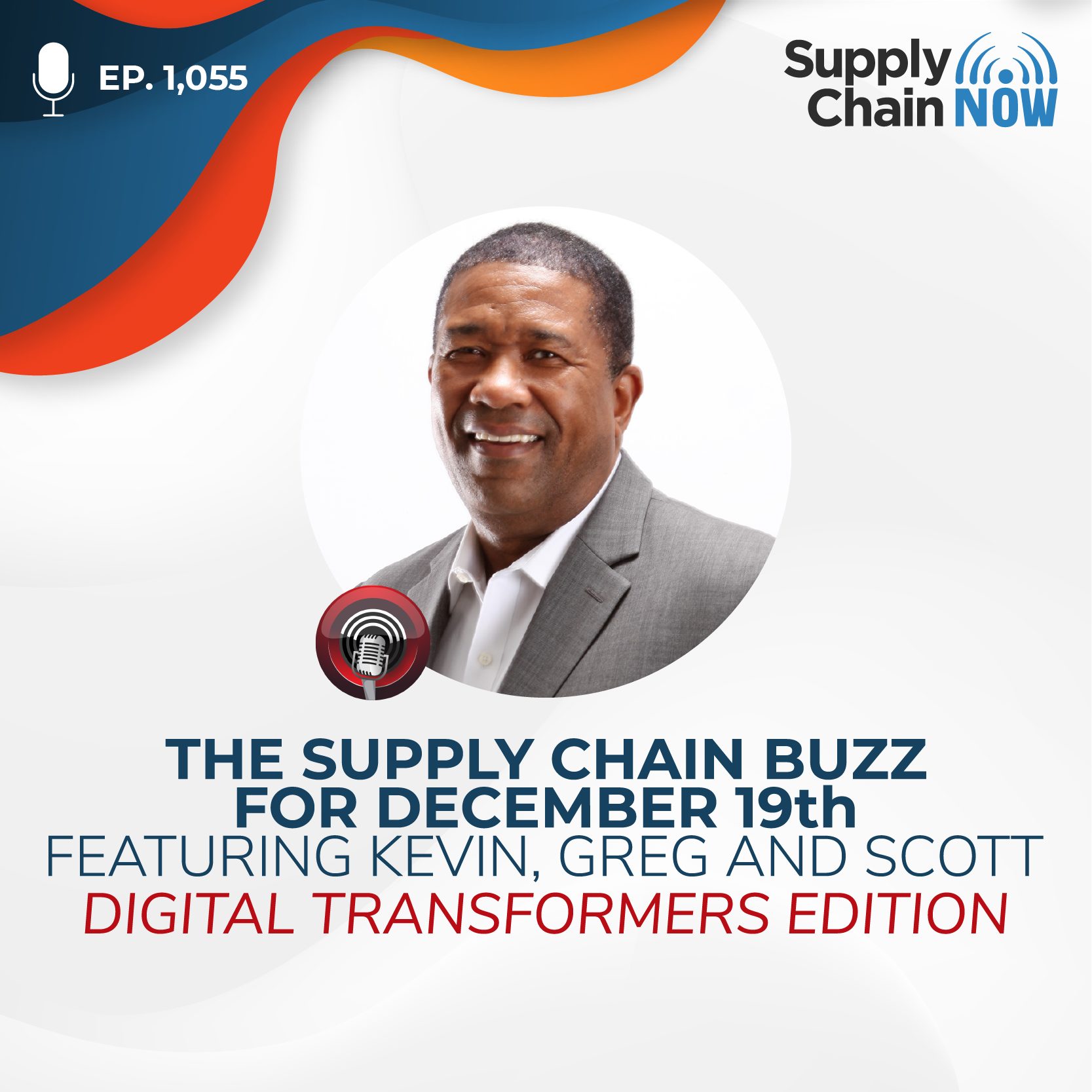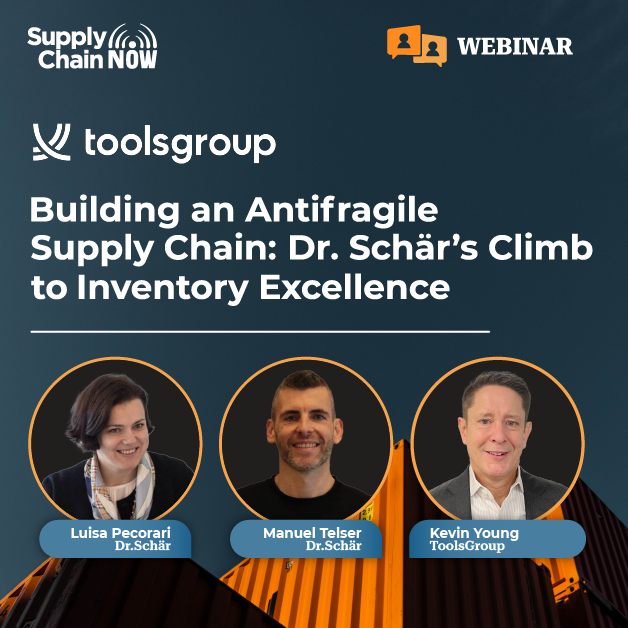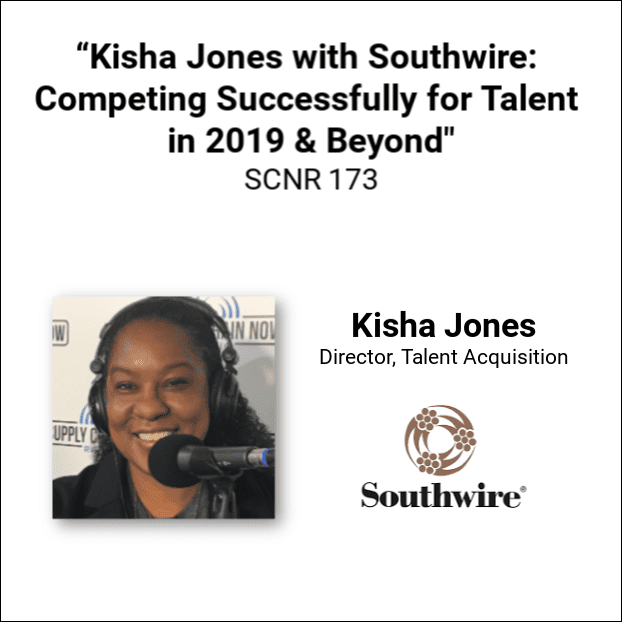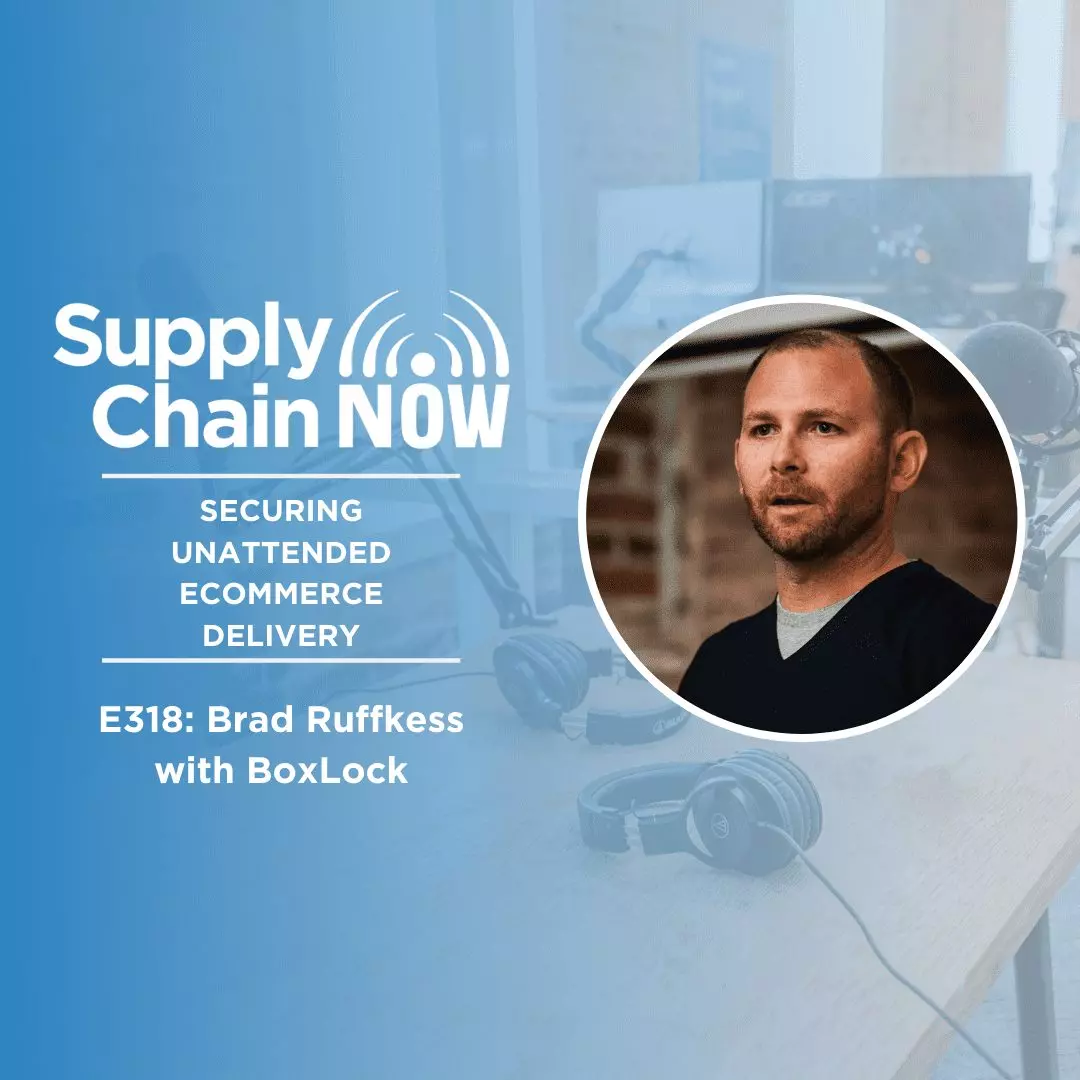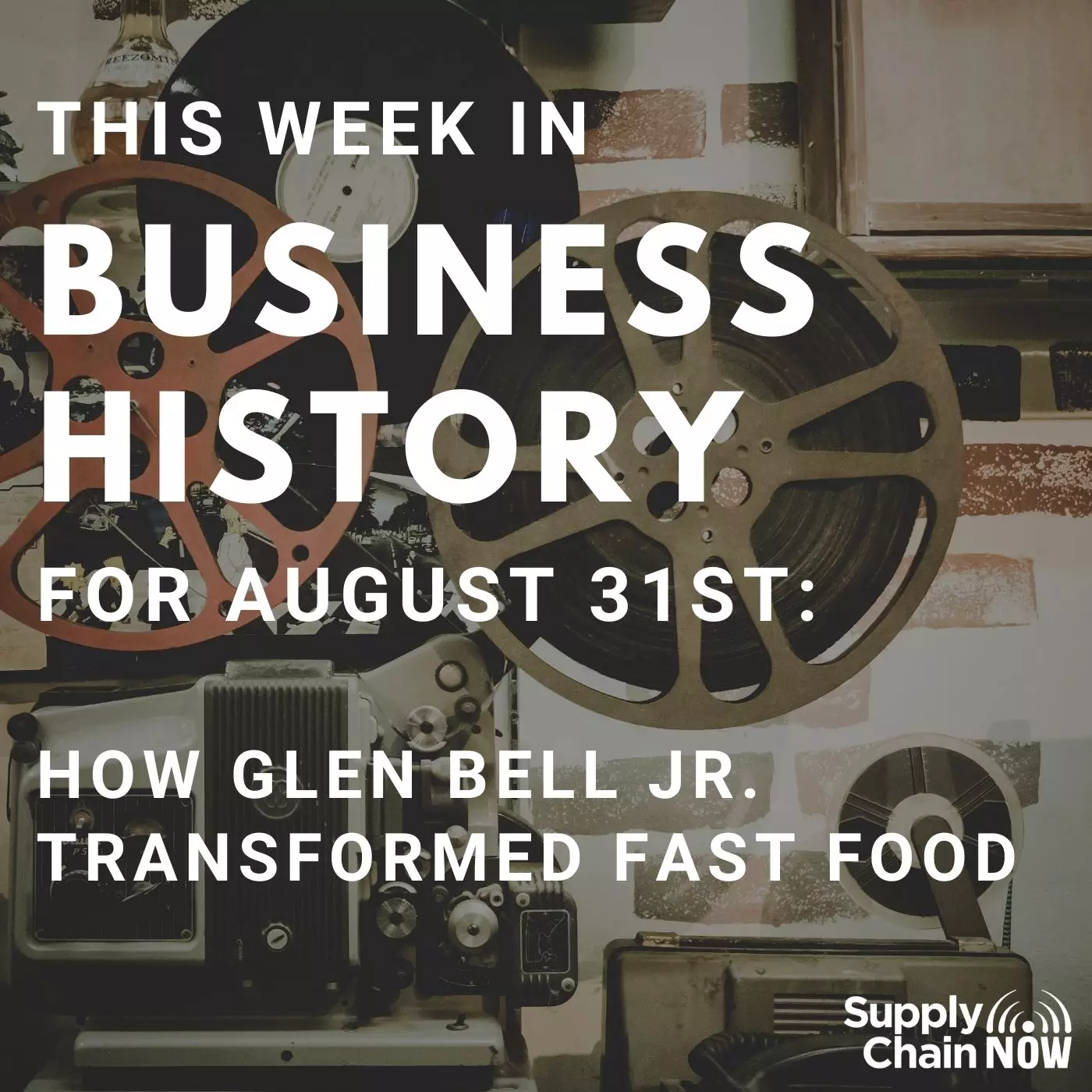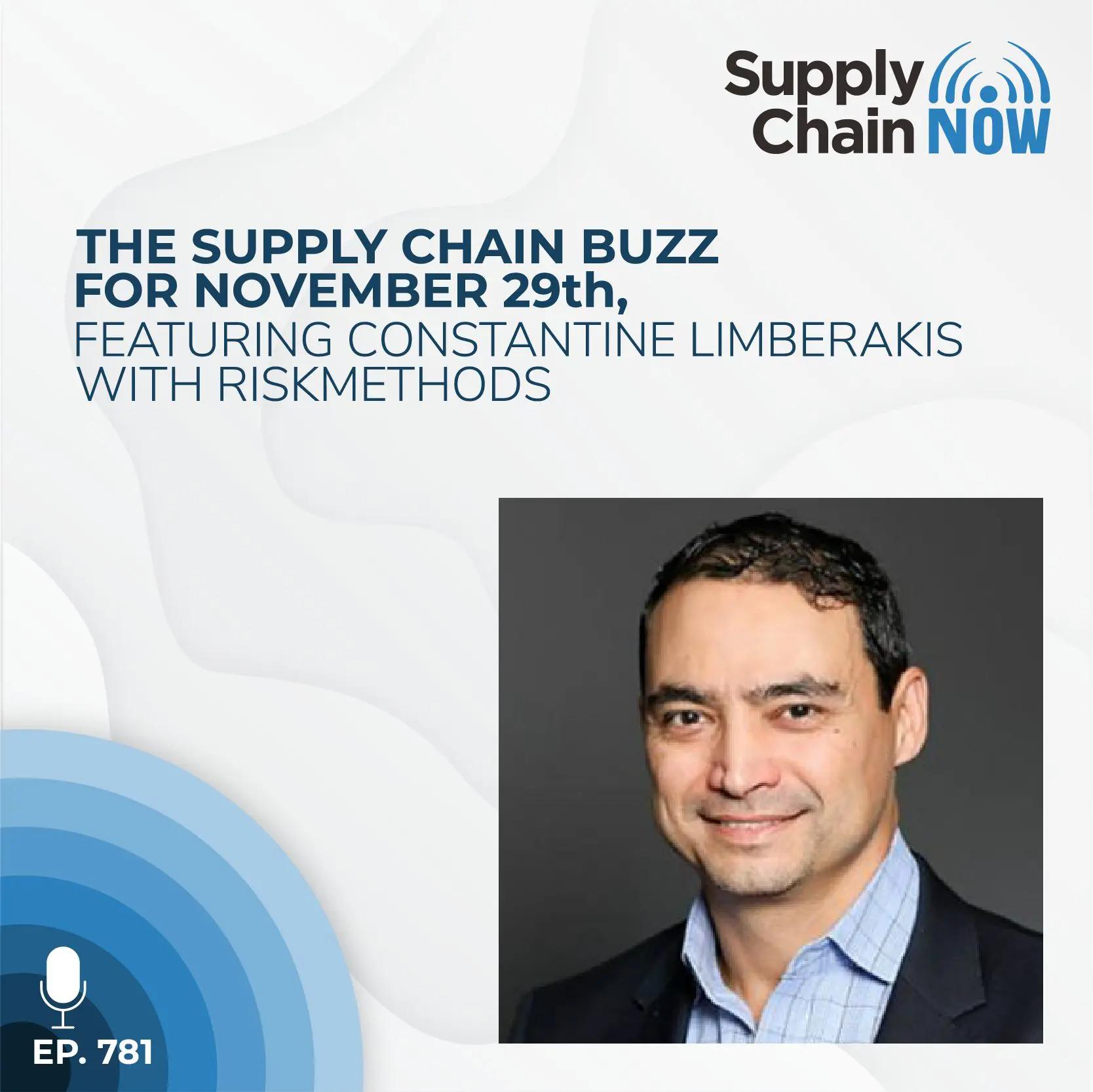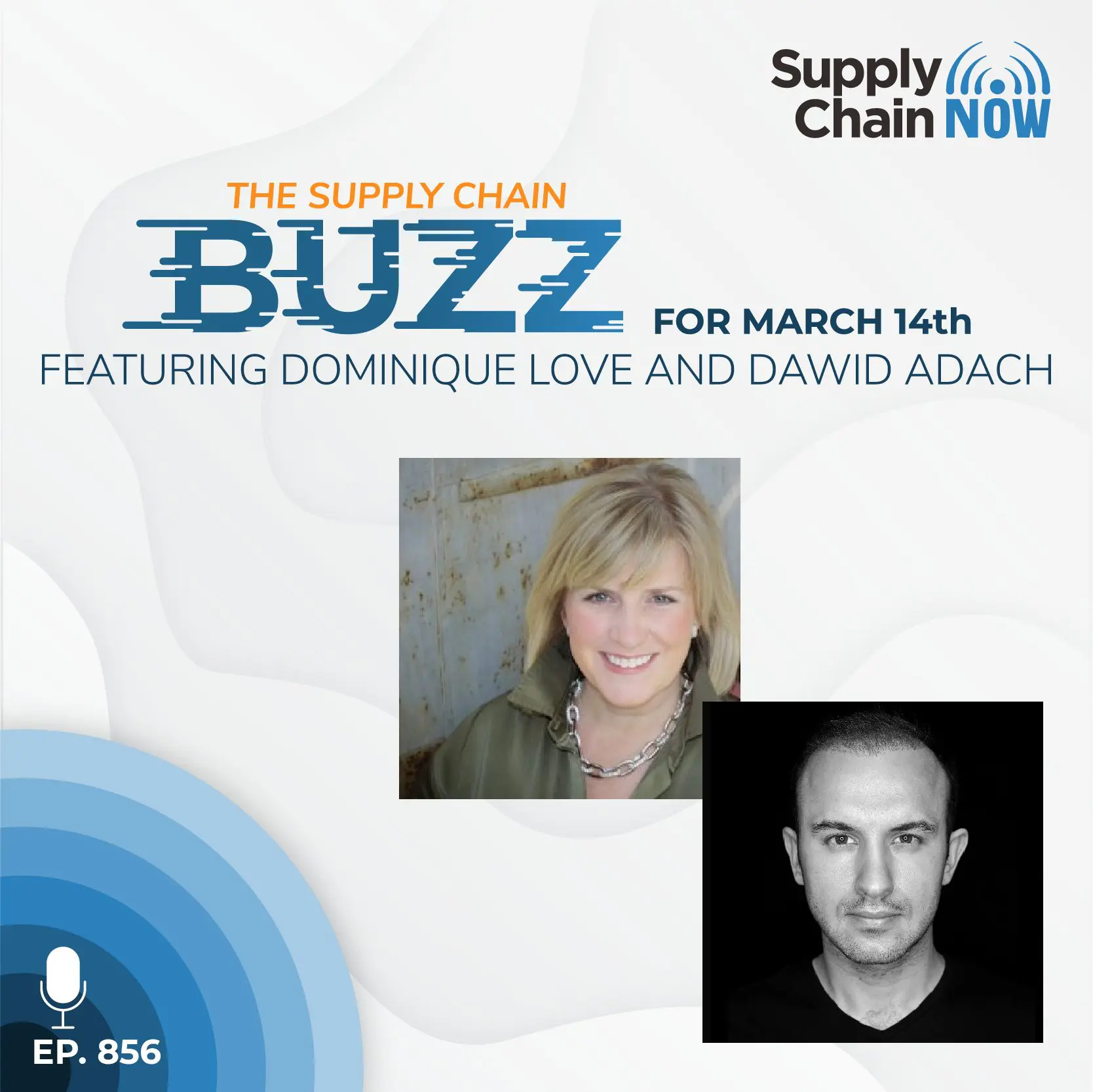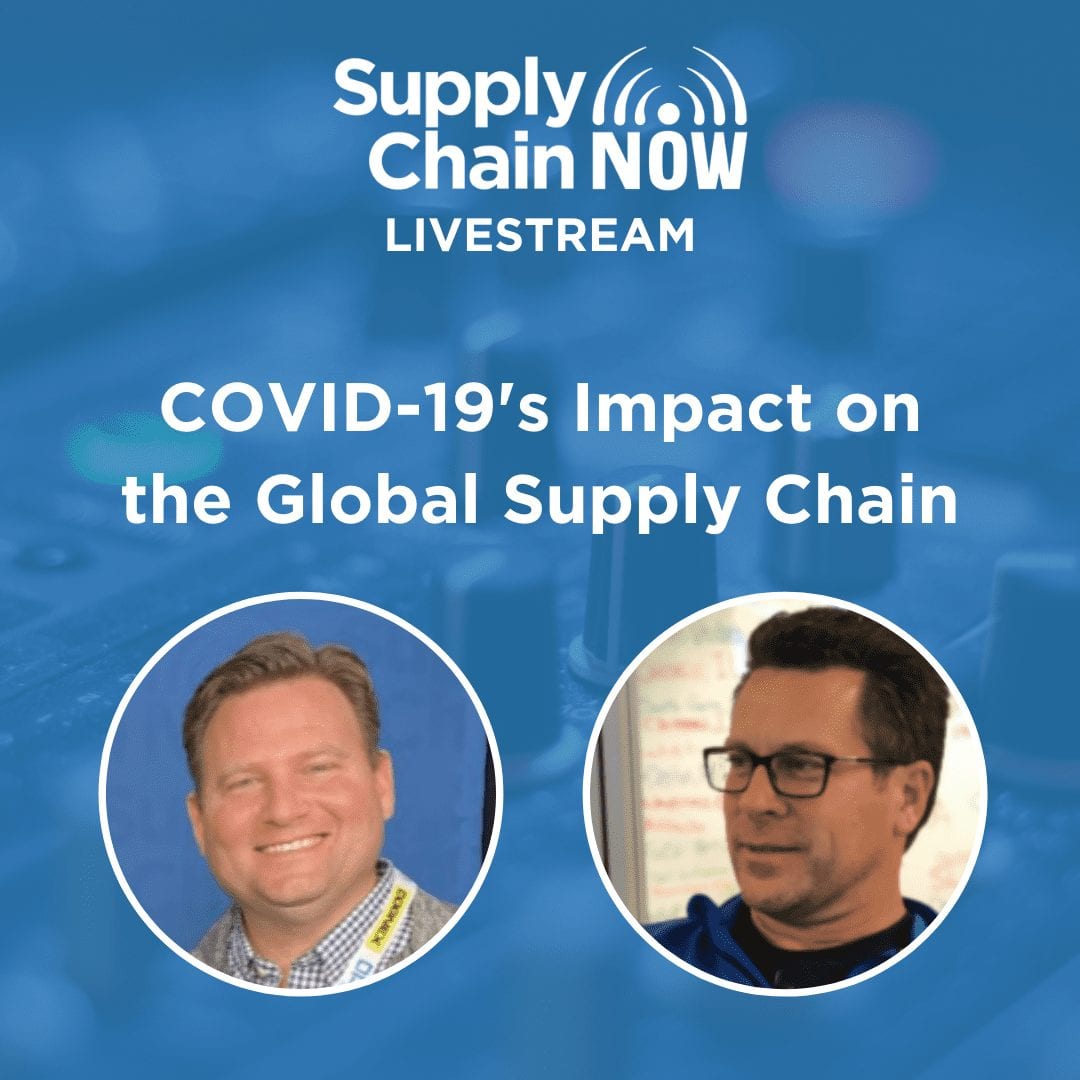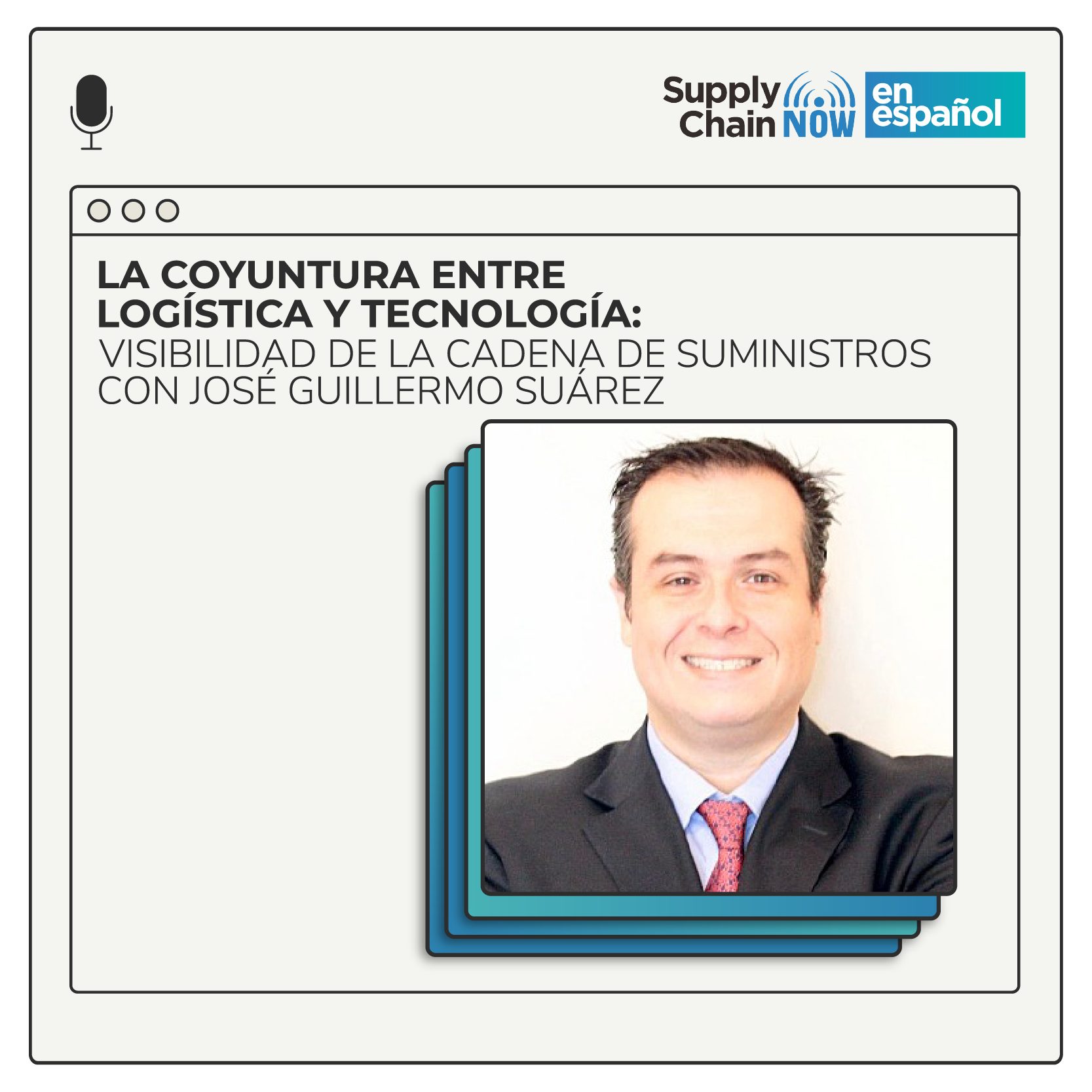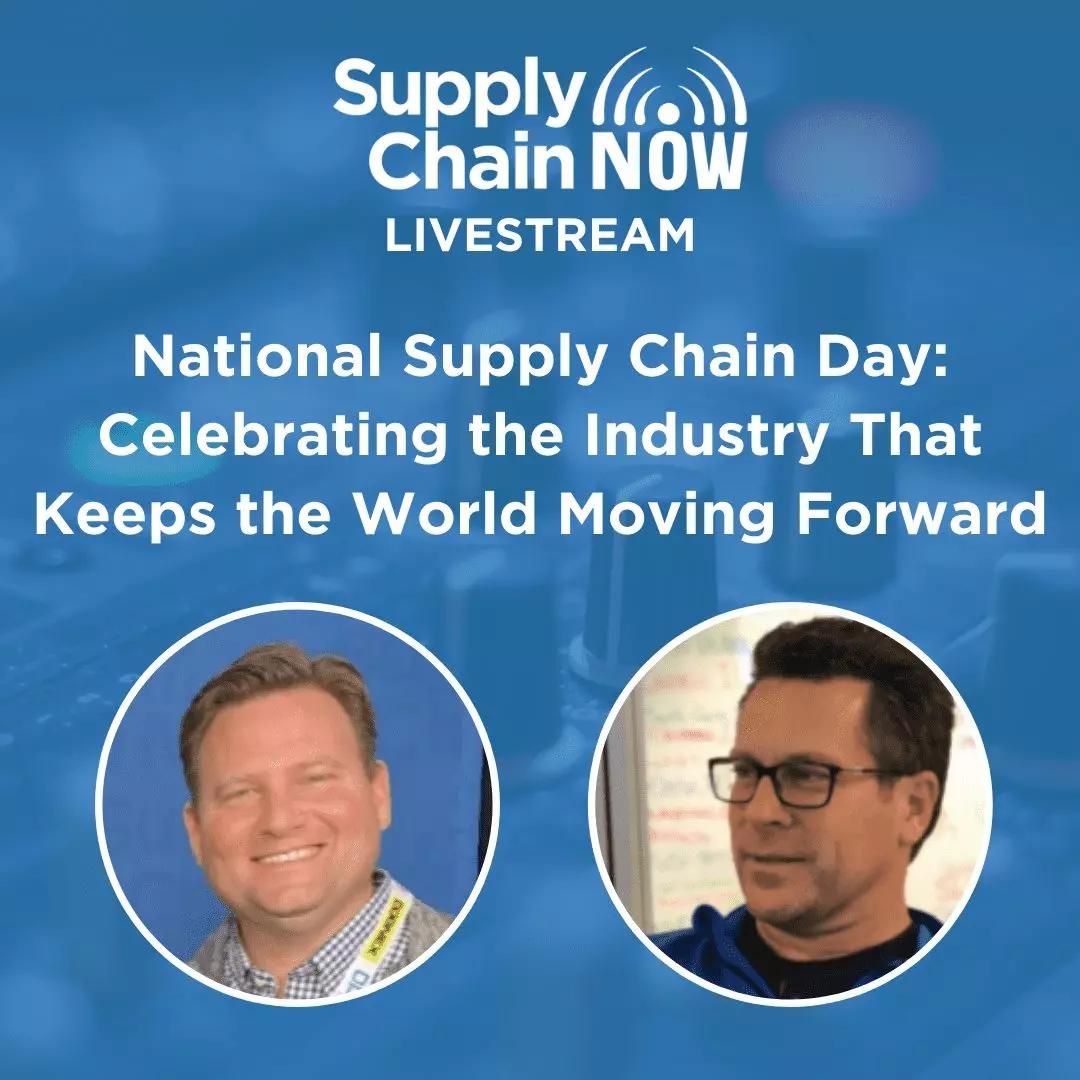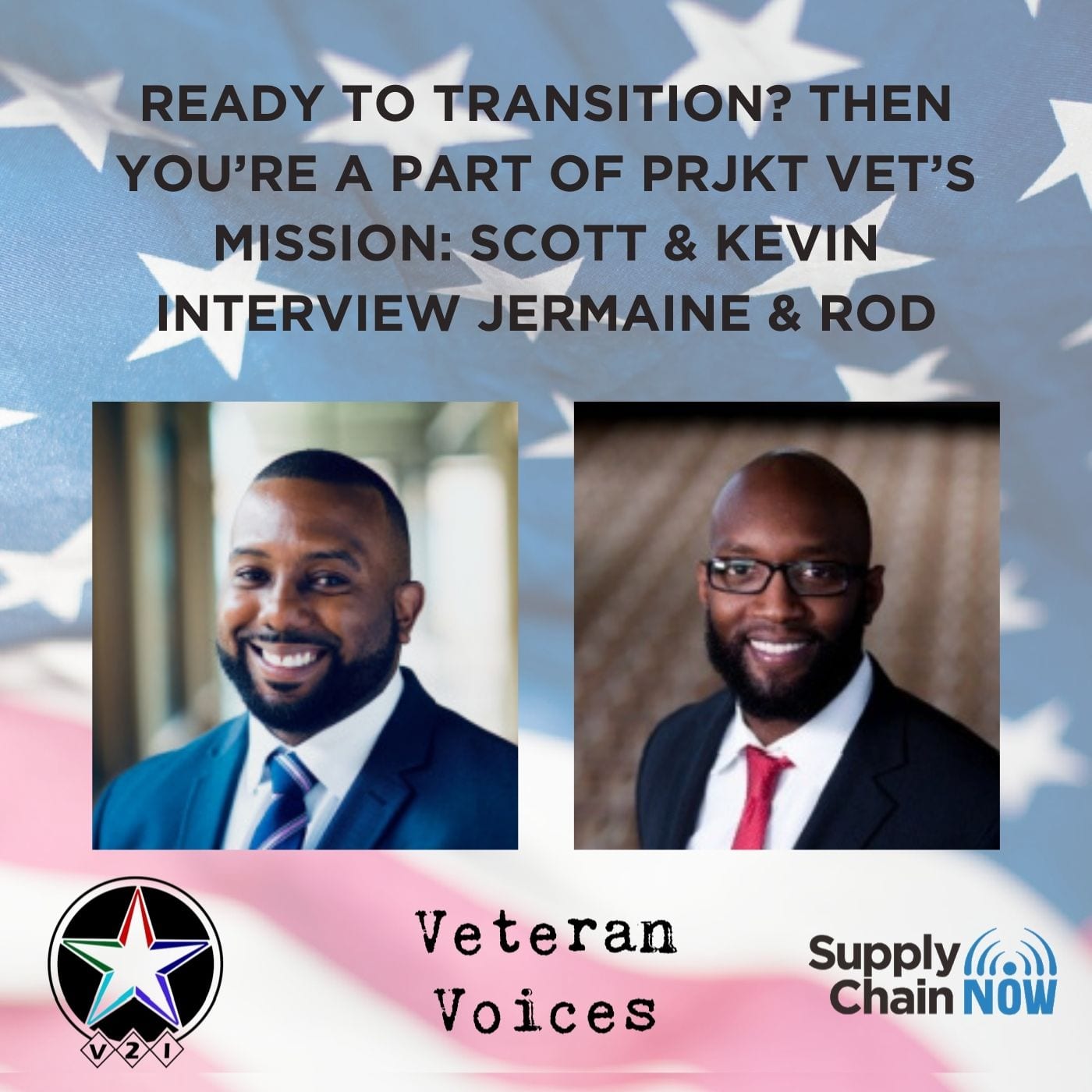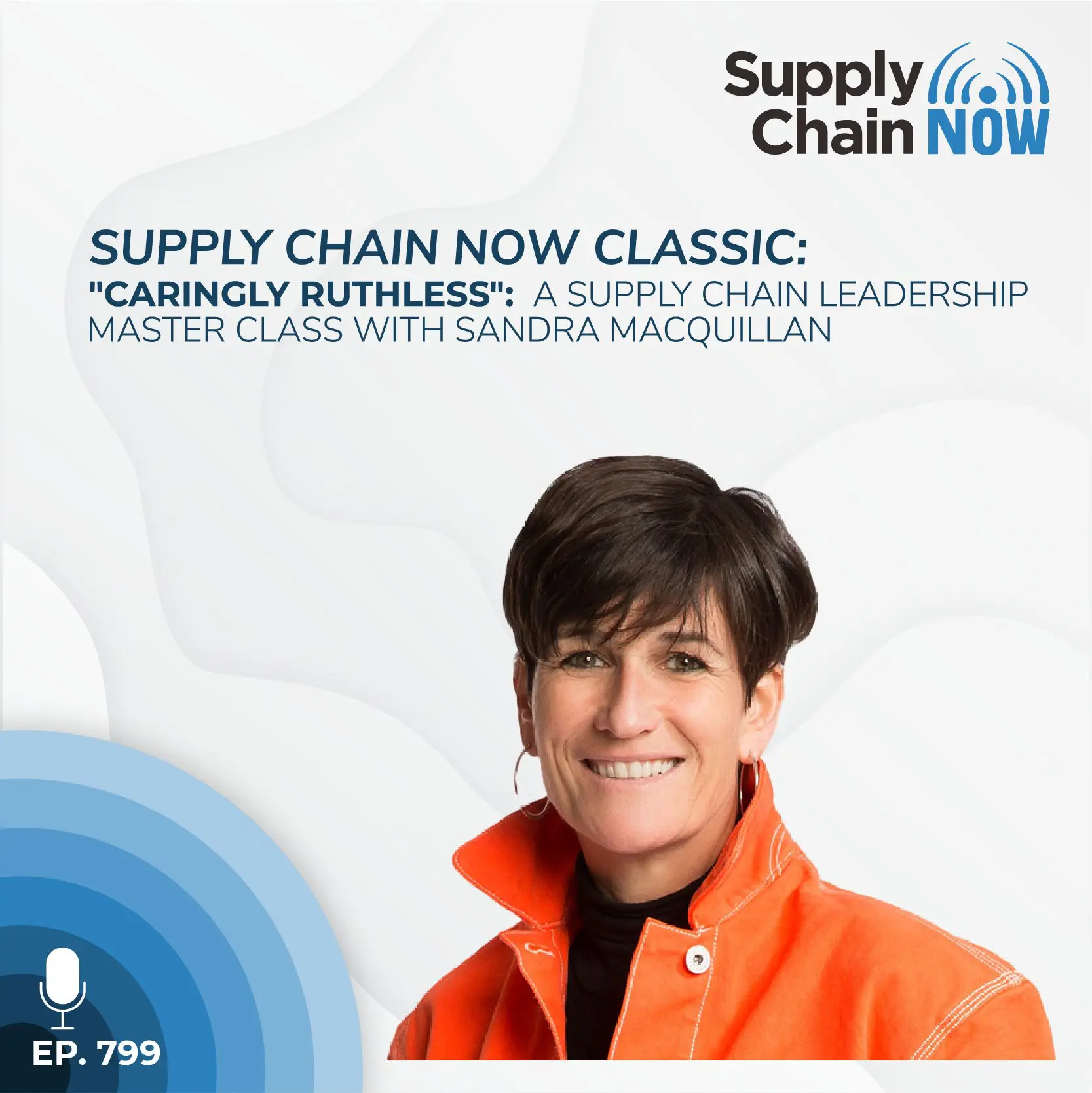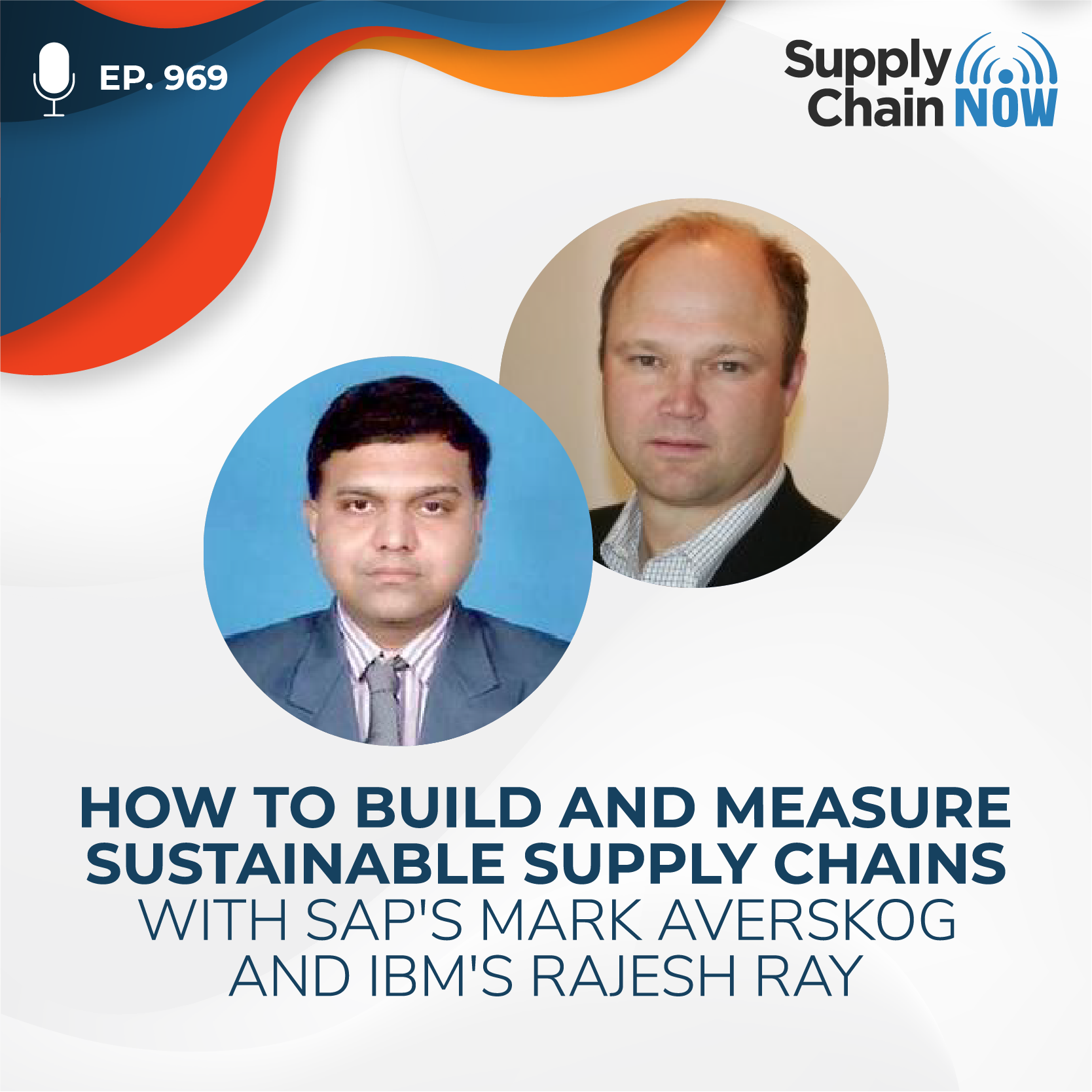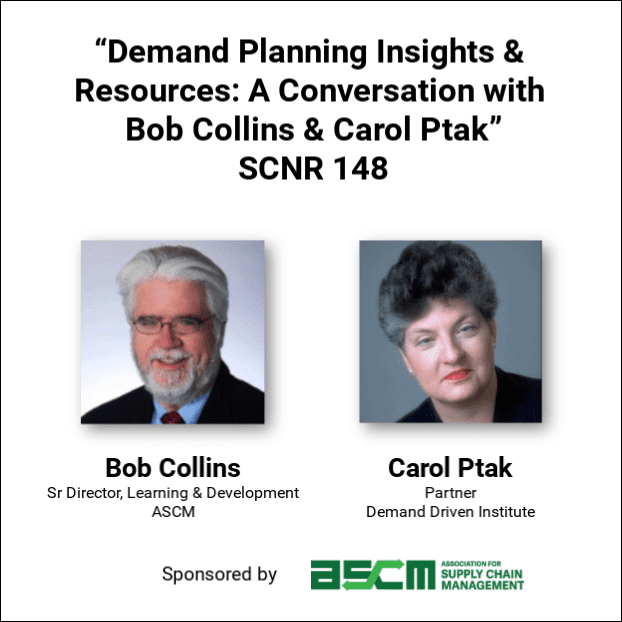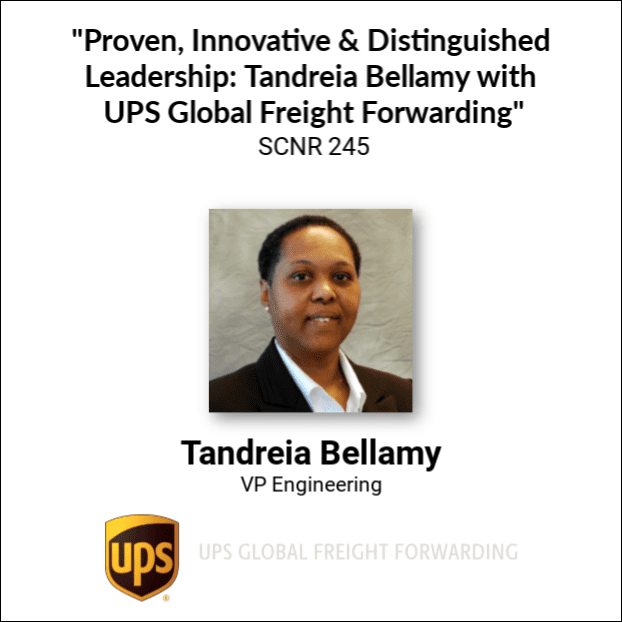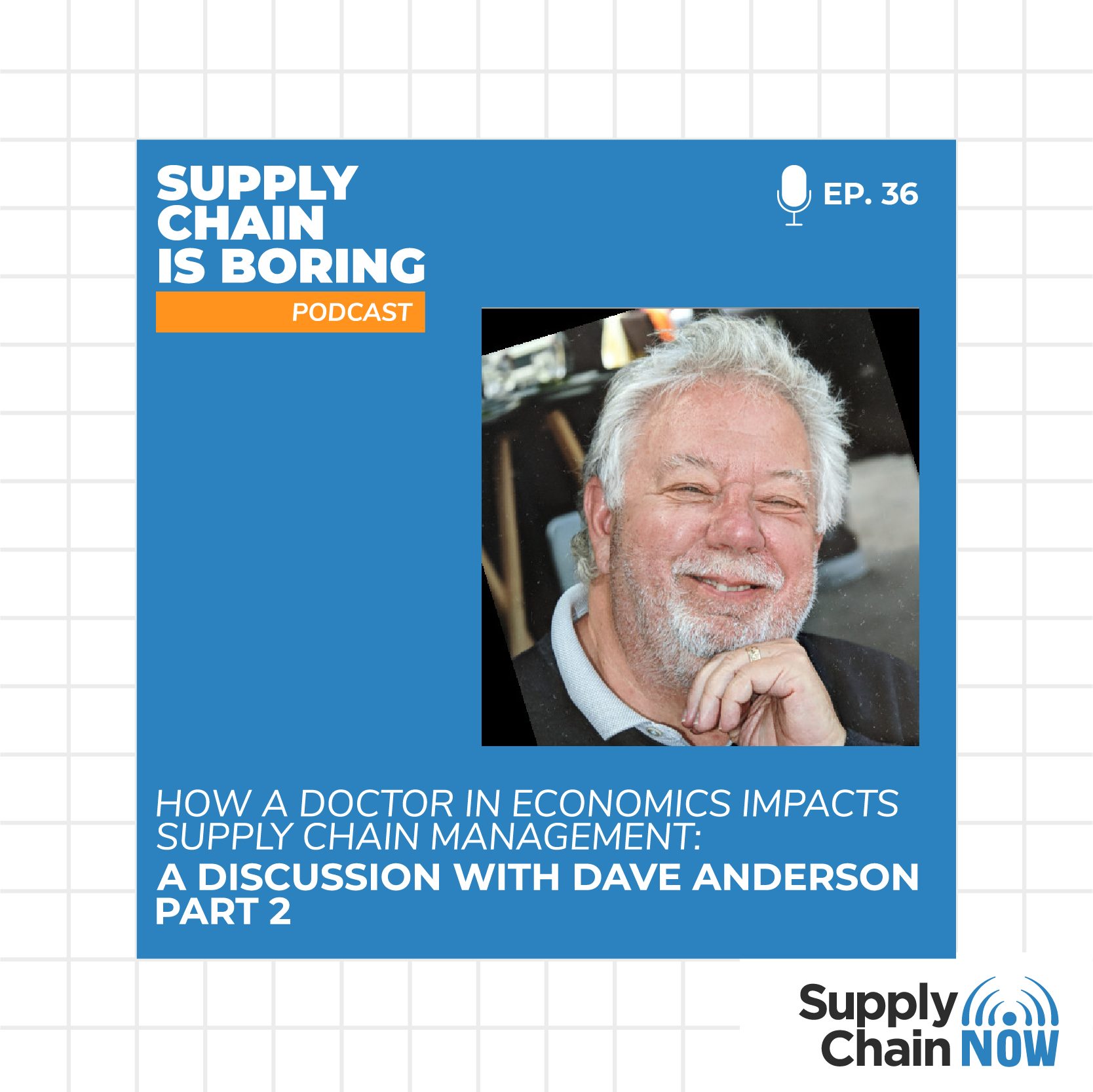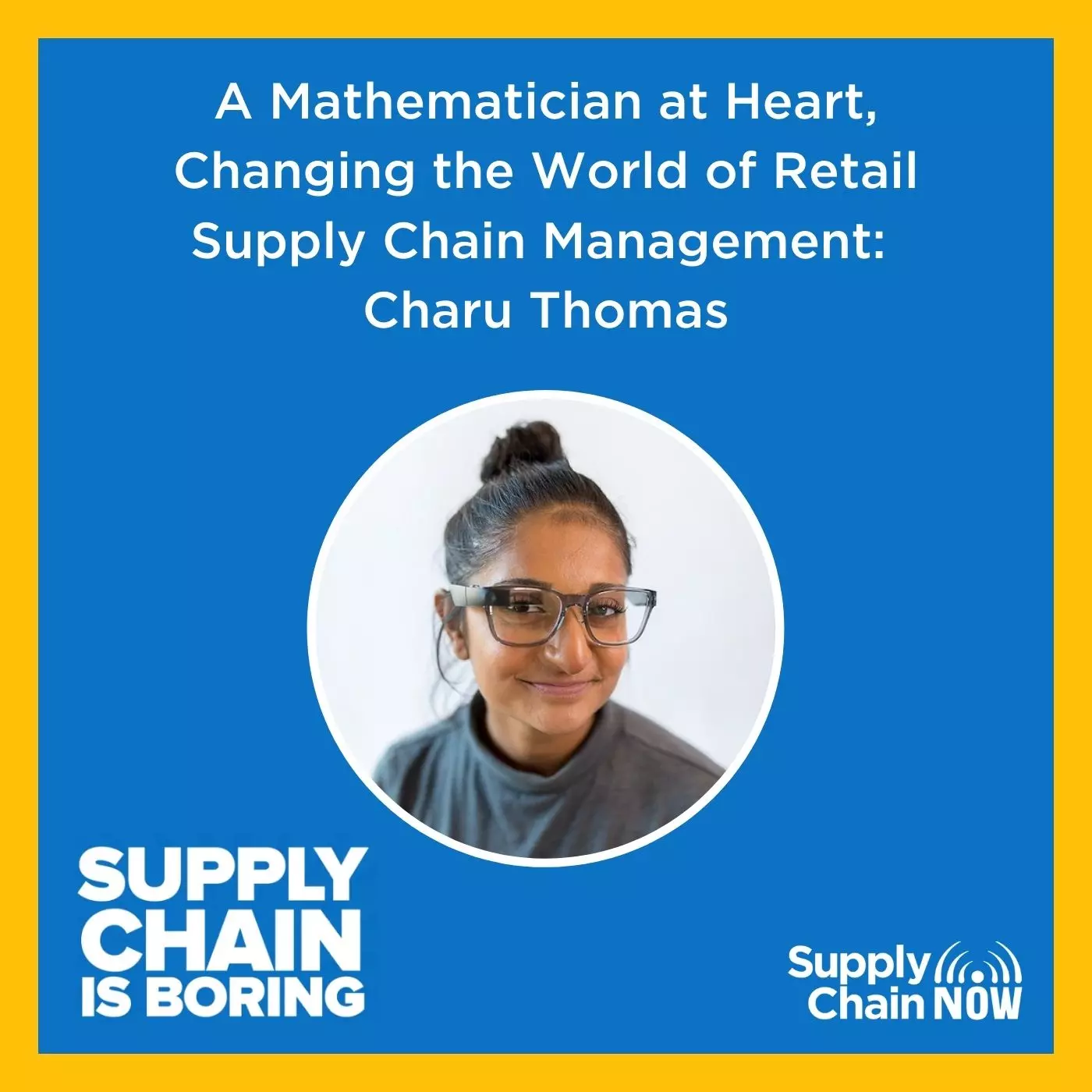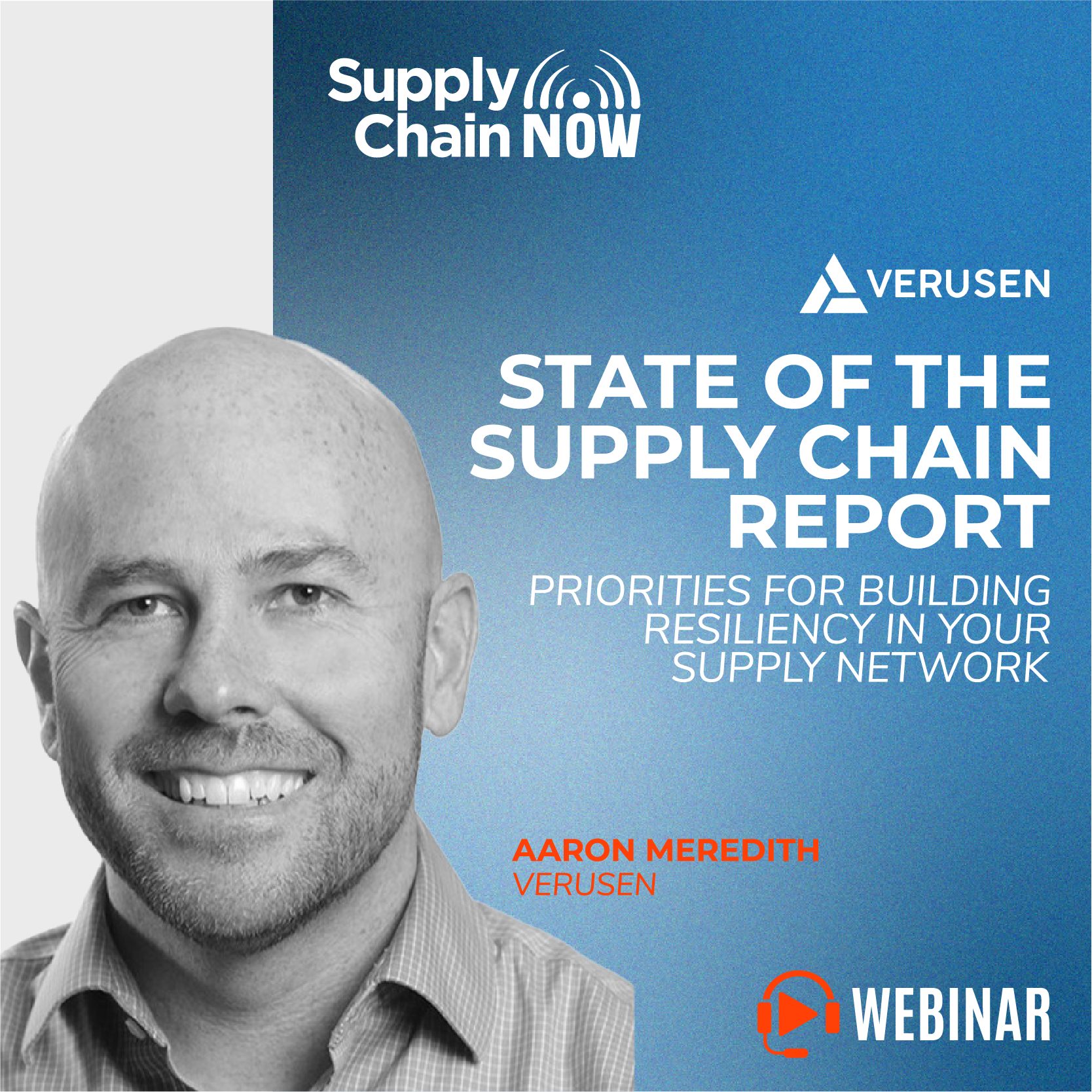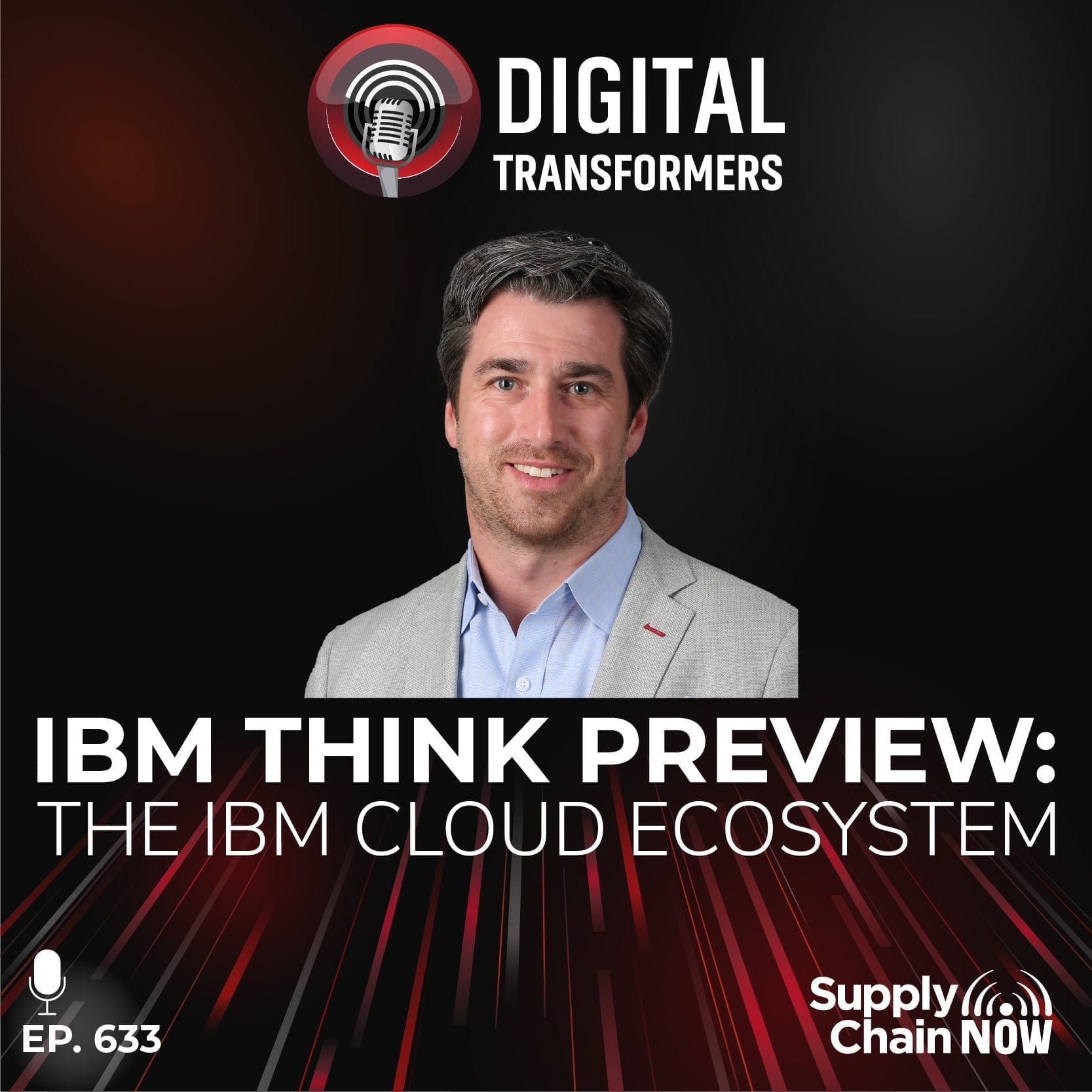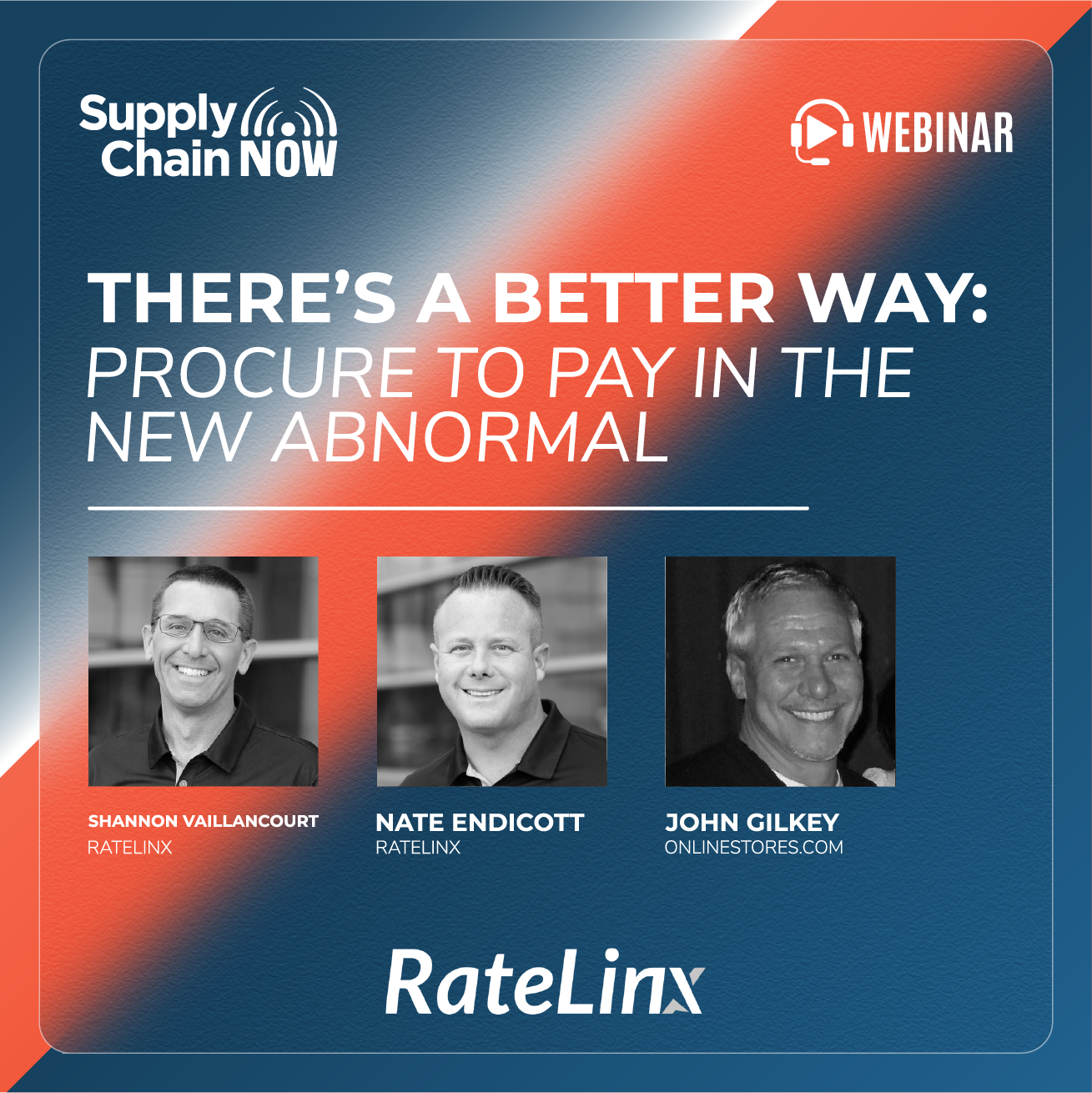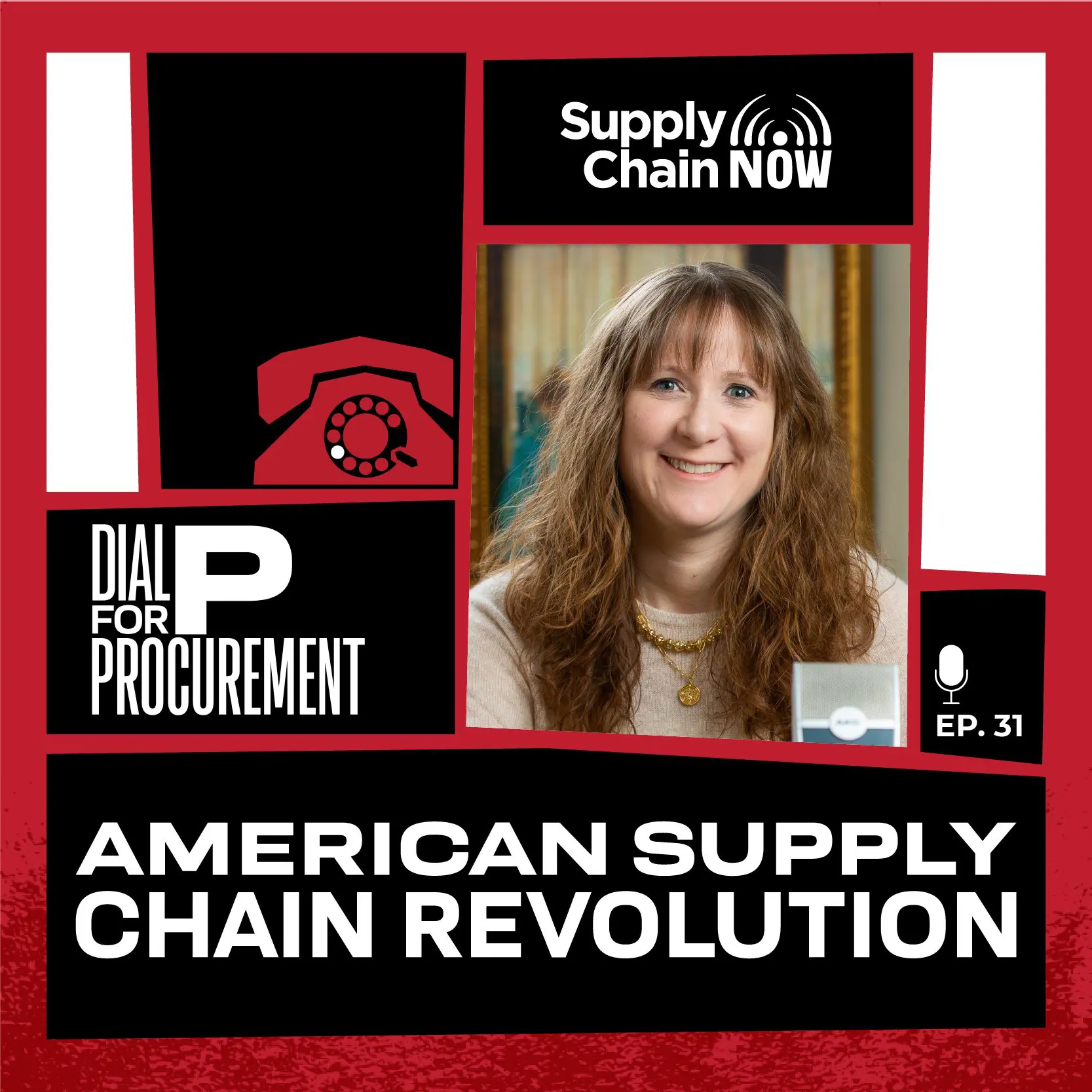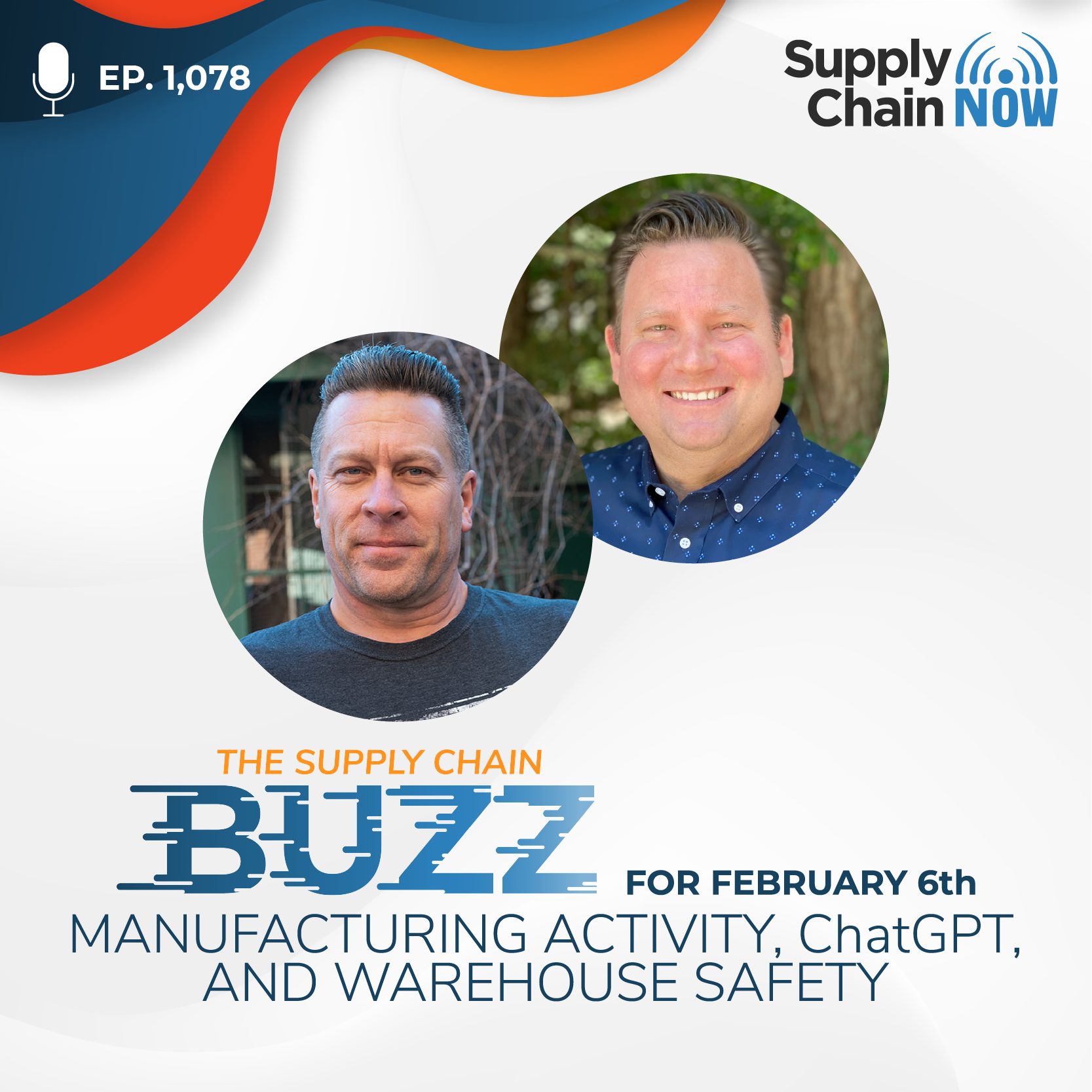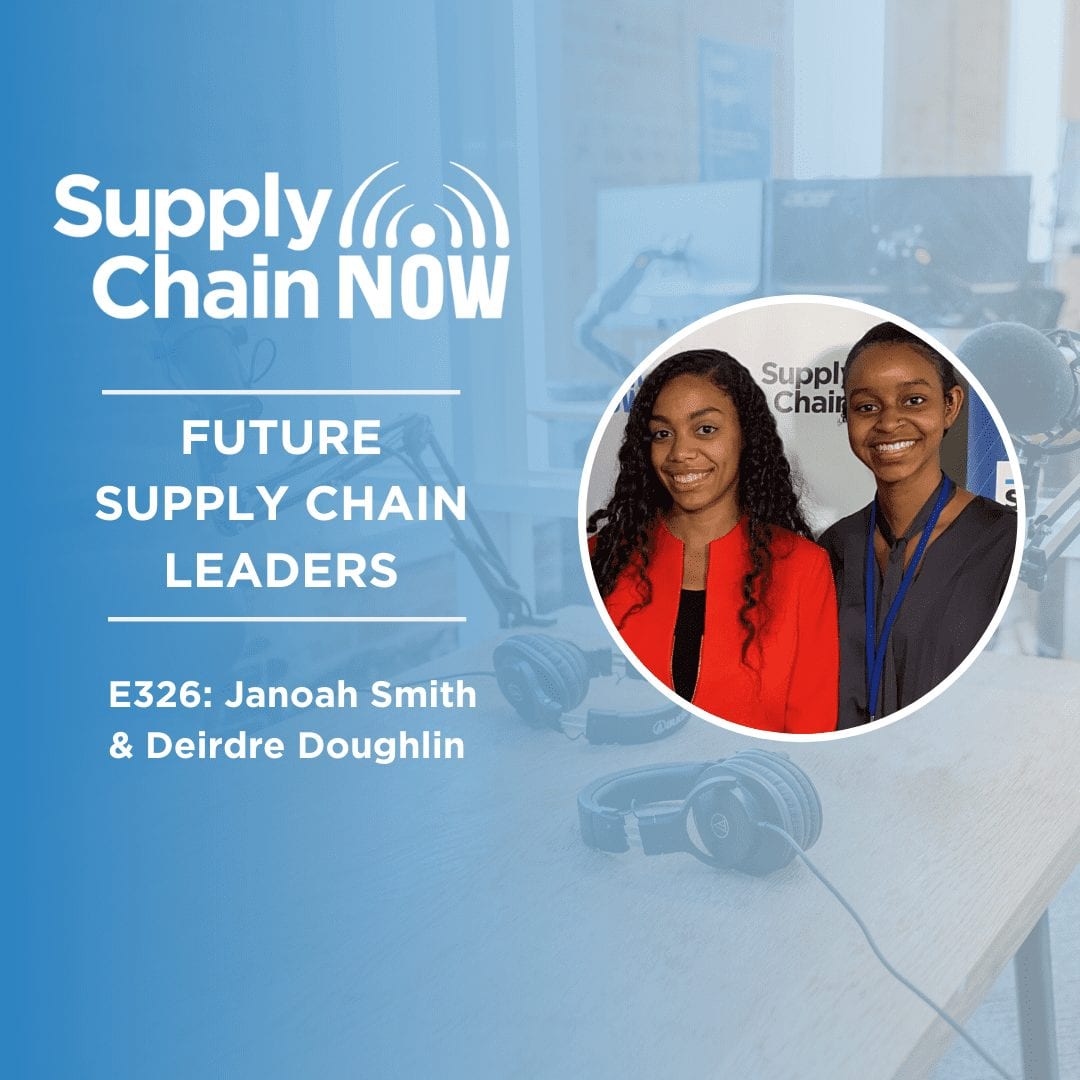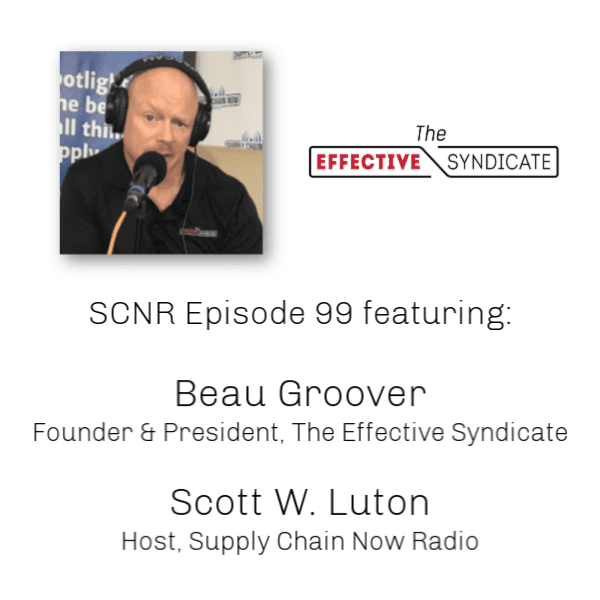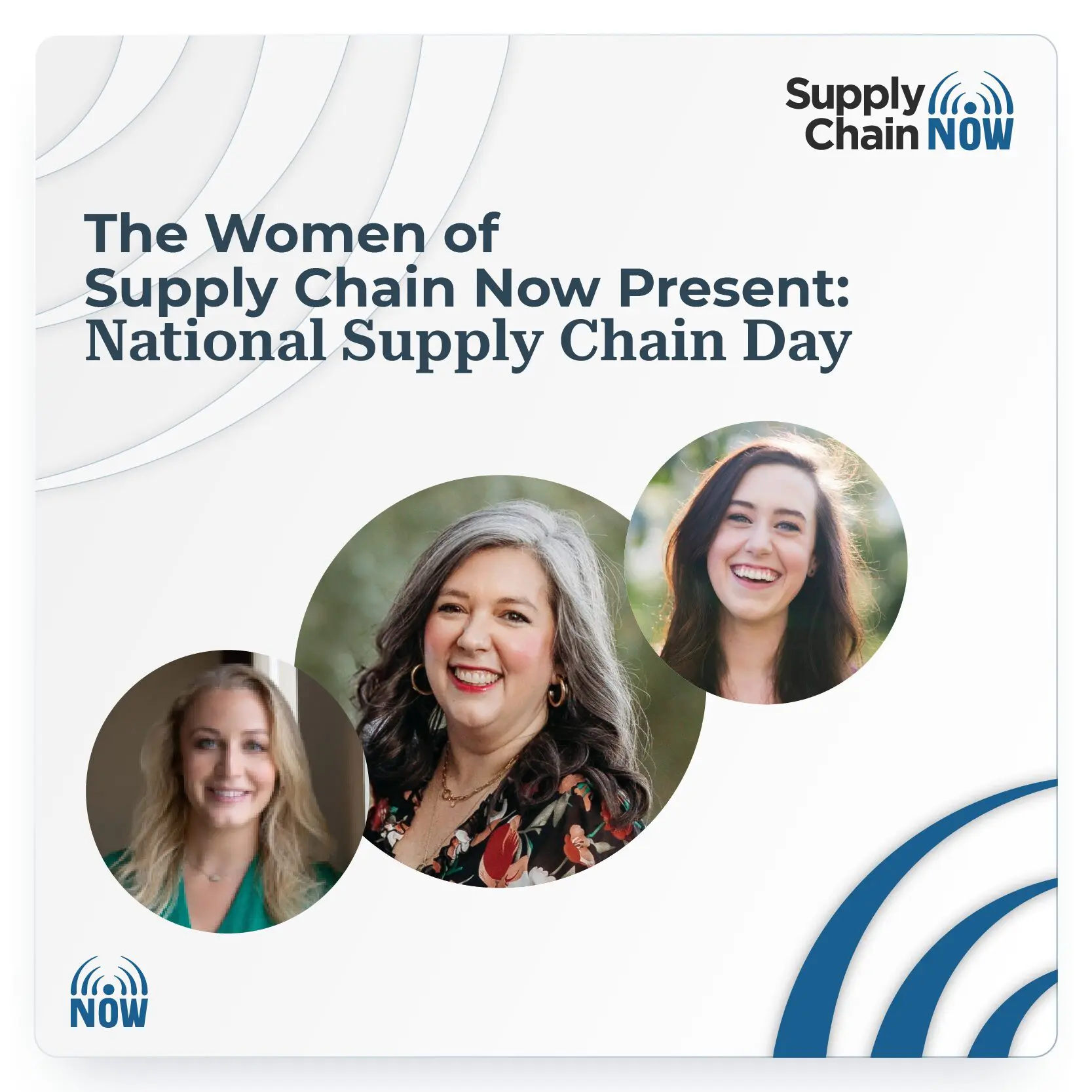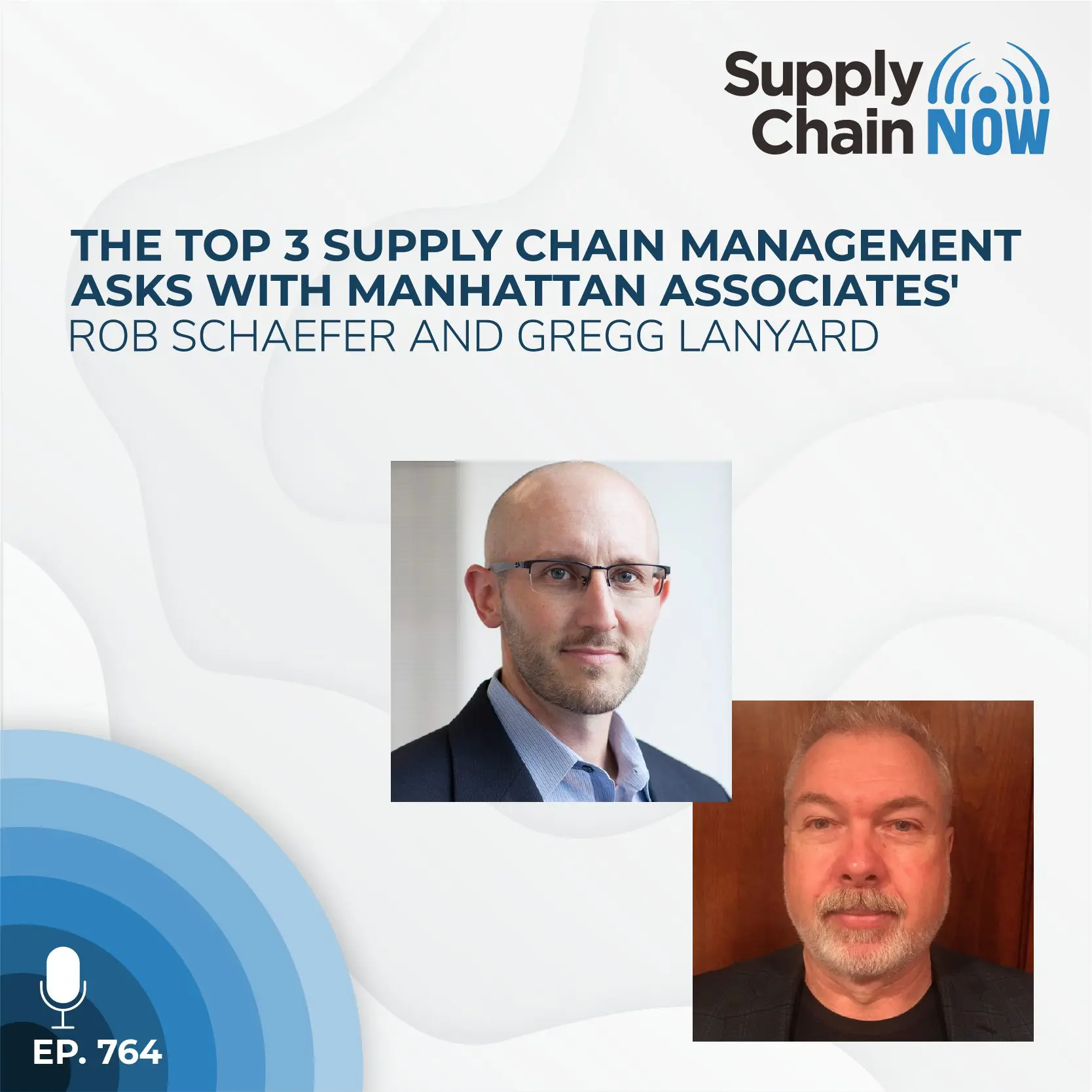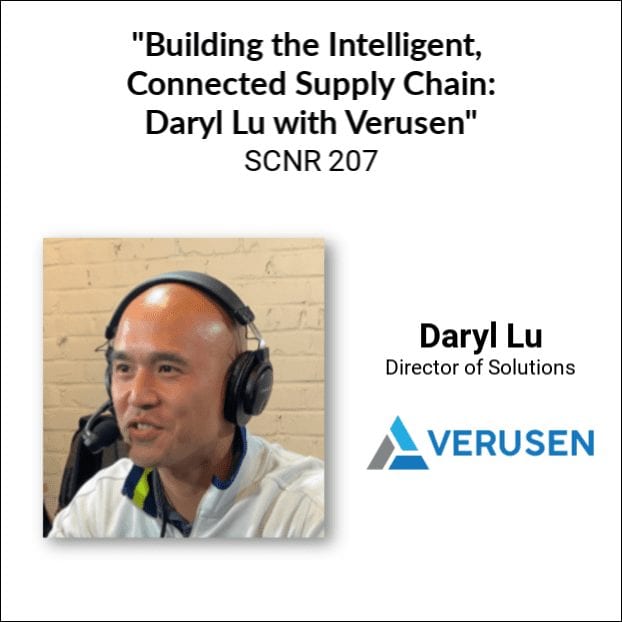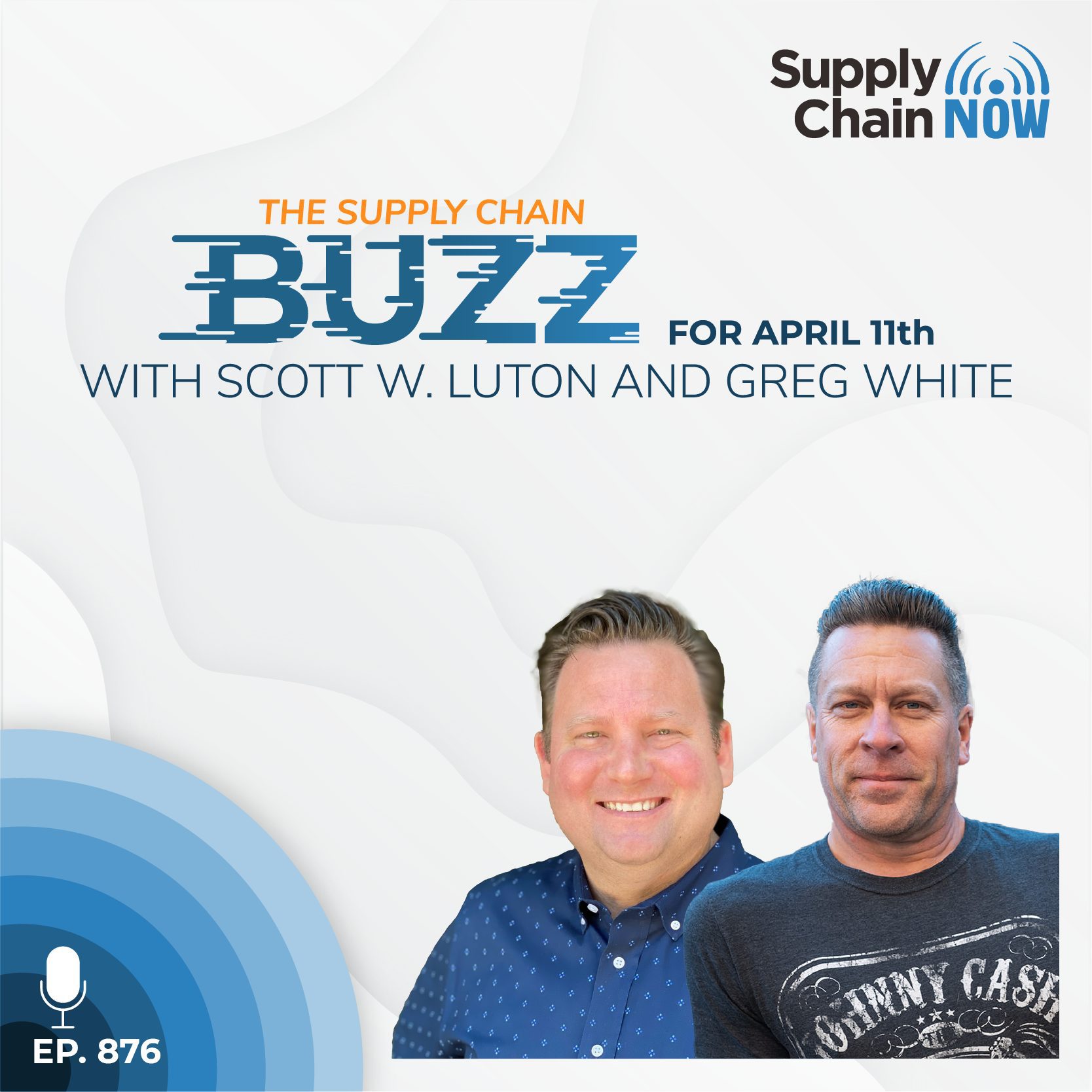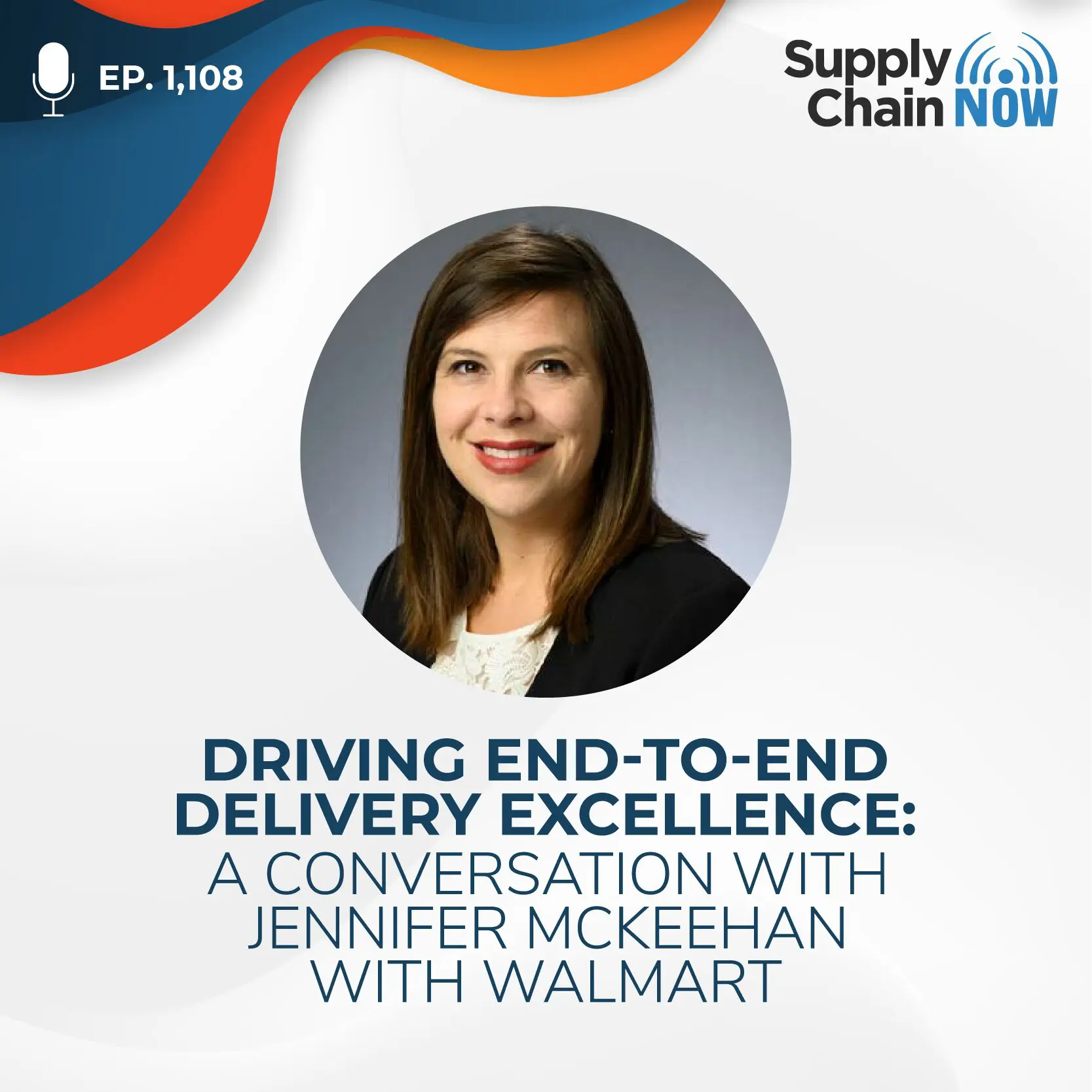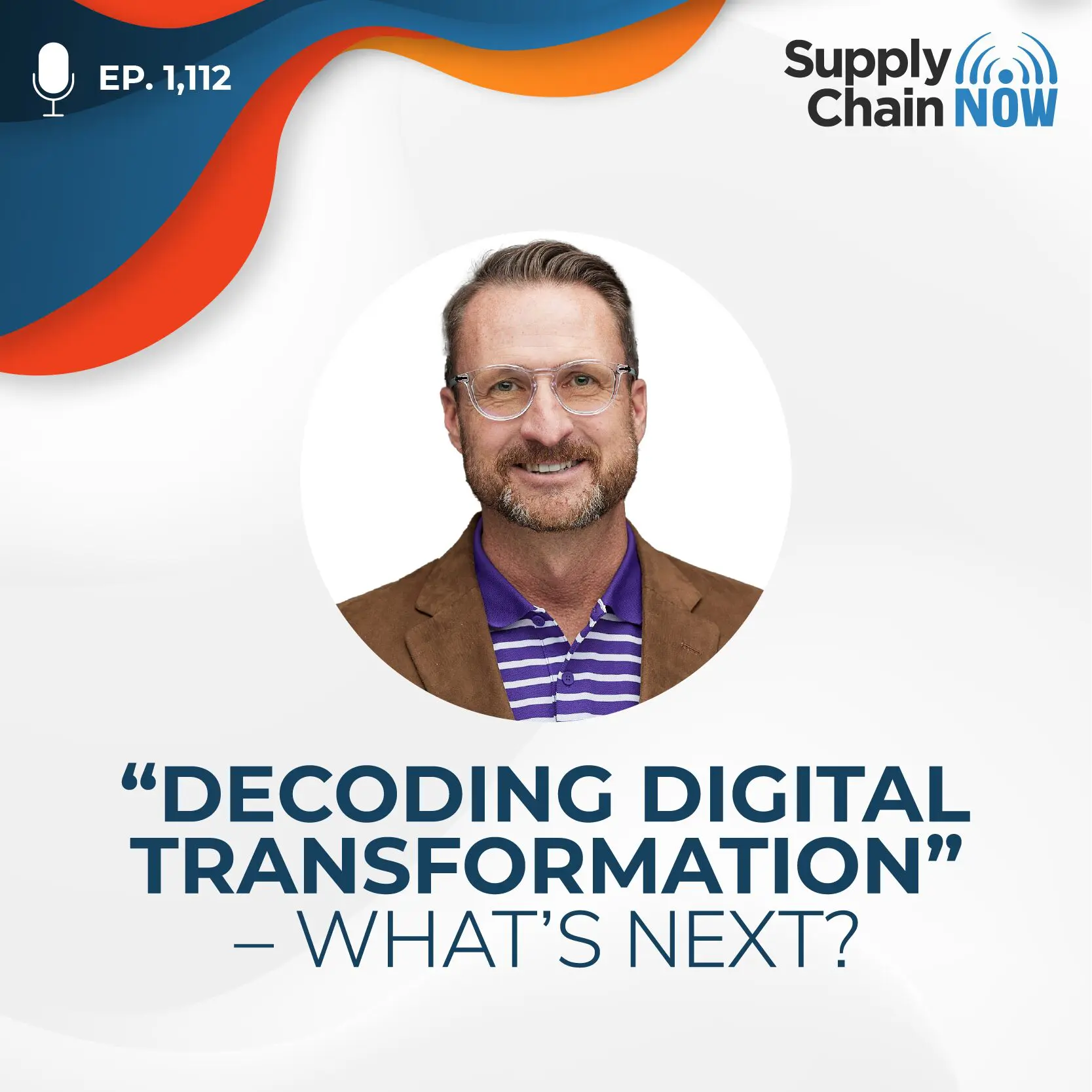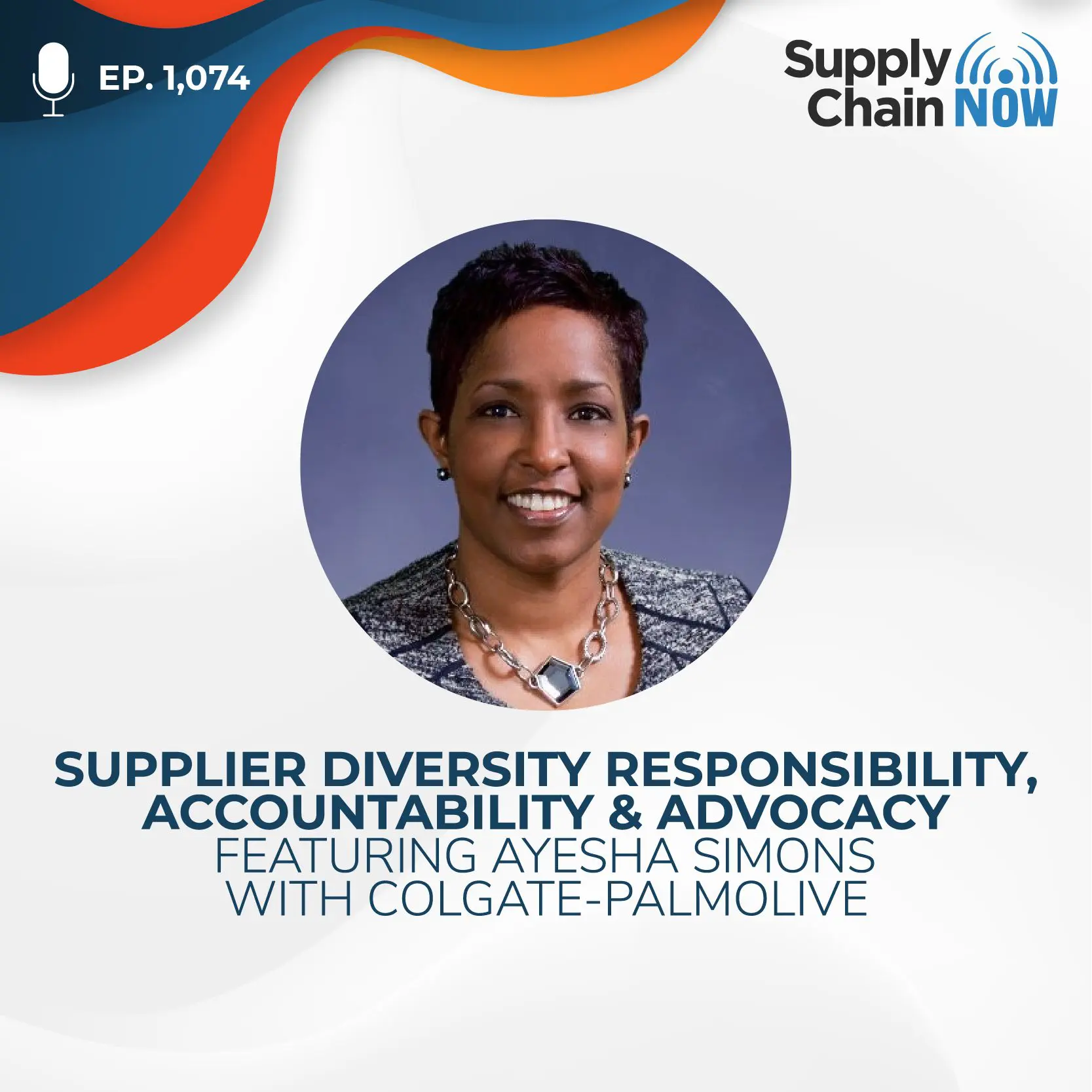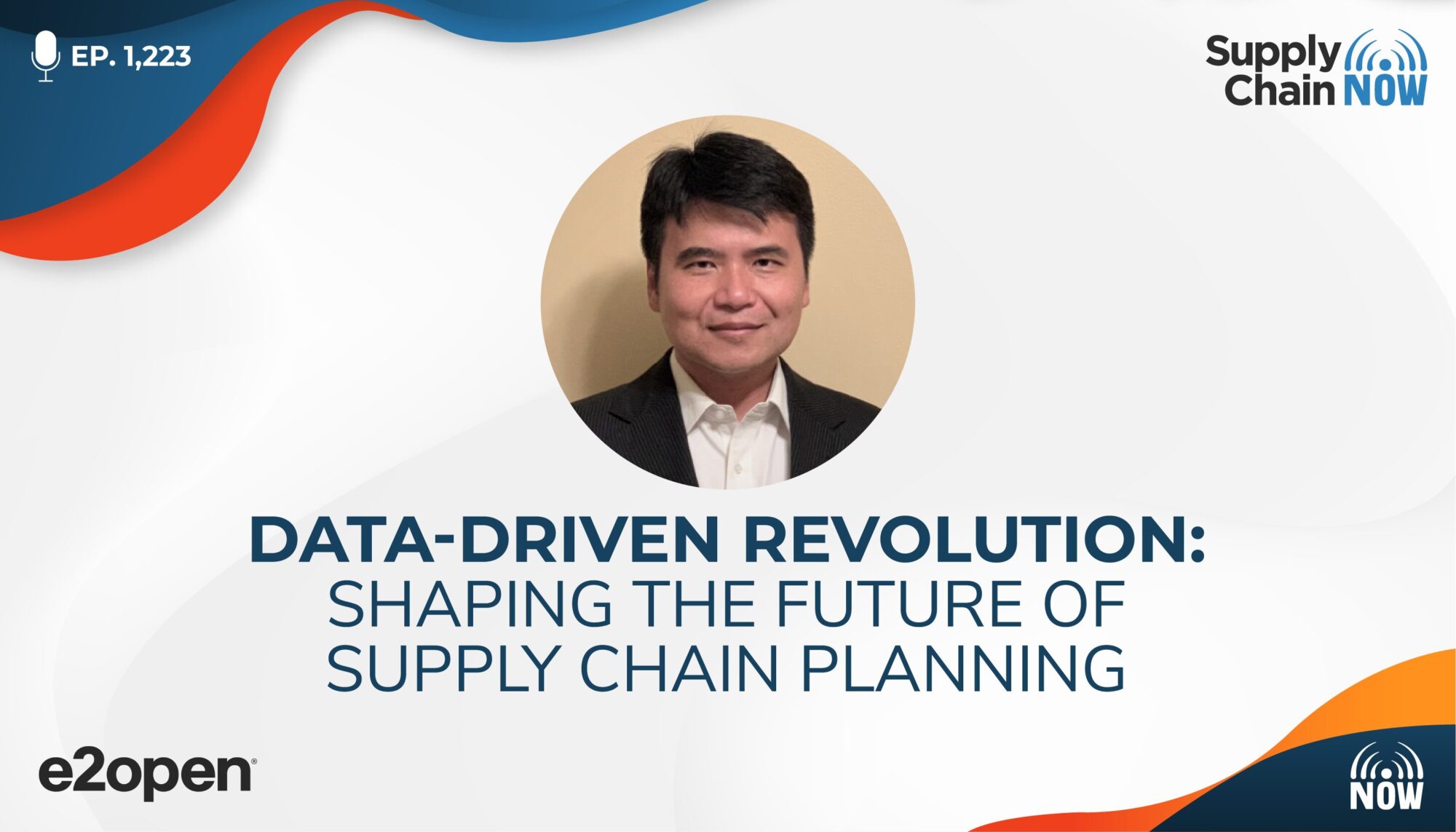
The most meaningful data for decision-making tends to be the value chain data, but it is a challenge for a lot of companies to access decision-grade value chain information.
-Zheng Sui, PhD
Episode Summary
All throughout industry, companies are using innovative technologies to transform successful planning within the supply chain. And nobody is more knowledgeable in the development and the cutting-edge solutions than Zheng Sui, PhD, the Vice President of Product Management and Head of Research at e2open, who pioneers advanced technologies for next-generation supply chain planning solutions.
Listen in as host Scott Luton welcomes Dr. Sui to the show as they delve into the importance of data in supply chain planning, the impact of AI, and e2open’s vision for the future of planning solutions, emphasizing connected planning.
Listen along as Scott and Dr. Sui also discuss:
- Insights into AI algorithms and scenario planning
- The evolving role of ESG considerations in supply chain management
- Predictions for 2024, highlighting the need for flexible strategies and increased integration of AI
Episode Transcript
Intro/Outro (00:03):
Welcome to Supply Chain Now, the voice of global supply chain. Supply Chain Now focuses on the best in the business for our worldwide audience, the people, the technologies, the best practices, and today’s critical issues, the challenges and opportunities. Stay tuned to hear from those making global business happen right here on Supply Chain Now.
Scott Luton (00:32):
Hey, good morning, good afternoon, good evening, wherever you are. Scott Luton with you here on Supply Chain Now. Welcome to today’s show. Now, I’m really looking forward to this conversation today as we’re going to be talking about one of our favorite topics around here, supply chain planning, but not business as usual. Oh, no. We’re going to be talking about how companies are leveraging innovative technologies to transform how successful planning gets done, making it easier for their people to be successful. And we’re going to have a little fun. We’re getting our expert guest here to predict a couple of things that planners and their teams can expect in 2024 and beyond. All right. So, stay tuned for a great show. With all of that said, I want to introduce our featured guest here today. Now, our guest today, he pioneers advanced technologies for next generation supply chain planning solutions. He brings more than 16 years of experience in global supply chain to the table where he is passionate about applying AI and other technologies to augment and automate supply chain decisions amongst other things. So with all that said, I want to welcome in Dr. Zheng Sui, vice president for product management and the head of research at e2open. Hey, Zheng, how you doing?
Zheng Sui, PhD (01:49):
Good. How are you, Scott?
Scott Luton (01:50):
I’m doing wonderful. I’ve enjoyed our pre-show conversation. I can’t wait to talk all things supply chain and then some with you, but I want to start. So, welcome in. I want to start because you live in the burbs of one of my favorite cities and that’s Chicago, is that right?
Zheng Sui, PhD (02:08):
Yes.
Scott Luton (02:09):
All right. So as I understand it, as our team has done some homework on you, you call home in the northwestern burbs of Chicago. So I got to ask you, when you’re not doing big things in global supply chain, what’s one of your favorite things to do in your free time?
Zheng Sui, PhD (02:24):
Sure. During my leisure hours, I like playing some badminton with a couple of friends and apparently, I’m not a good player, but I certainly enjoy the energetic moment on the court. And, I mean, in Chicago you got a lot of snow and we have a heavy snow yesterday, so I got a lot of chance, a lot of time at home. And when I am at home, I just like sitting in the couch and listen to my daughter play piano and she does not like to play piano very often. She’s not very willing to practice piano. However, I enjoy this brief period of time.
Scott Luton (03:02):
Oh, I love the picture you paint there. Practice makes perfect. So to your daughter that may be listening out there, but I love — as a fellow father, I’ve got three kids of my own, two daughters, Zheng, and I love seeing them pursue their passions in life —
Zheng Sui, PhD (03:16):
Absolutely.
Scott Luton (03:16):
Whether they like practicing or not. That’s really rewarding for a parent, isn’t it?
Zheng Sui, PhD (03:21):
Absolutely. Yeah.
Scott Luton (03:22):
Okay. And we’re going to have to get some video evidence of your badminton prowess maybe on the next show, Zheng. All right. So I want get into a lot of stuff here, a lot of stuff, good stuff that we’re going to be talking about. I want to start with offering some of that valuable context. We can’t get enough context in this modern, data-driven, fast-changing life that we’re all living. So I want to give some of that context for our audience. Tell us in a nutshell what does e2open do and tell us a little bit about your role there.
Zheng Sui, PhD (03:52):
Sure. e2open is a supply chain platform to help the largest, the world largest companies, to transform their business through the modern supply chain. And our mission is to build the most comprehensive and end-to-end global supply chain software ecosystem, combining the networks, data and applications to deliver the custom values. And speaking of the applications, there are, like, five application suites in e2open platform, they’re channel management, business planning, supply management, logistics, and global trade management. And I am leading the product management team for one of the application suites, which is business planning. And also, I lead the research and the data science team of e2open to solve the complex supply chain problems using math such as mathematical optimization as well as the machine learning algorithms.
Scott Luton (04:51):
Okay. Man, that sure is intimidating. When I hear the head of research, I mean, I can’t imagine all that you do day-in and day-out. But I want to back up to something when you were talking about e2open. I love — of course, y’all have won a bunch of different awards and helping a lot of teams across the globe, but I love this one of y’all’s main mantras. It’s very poetic, supply chain poetry. Connected data enabling a connected supply chain to move as one. That paints such a clear and serene moment in my mind. How about you?
Zheng Sui, PhD (05:25):
Yeah, same. Yeah, so connected planning is always what we’re thinking of the future supply chain, especially for supply chain planning and we had a vision about connected planning and we’re working on that.
Scott Luton (05:39):
Love that. Okay. So, let’s get into then, now that we — most of our audience, the three people that made had not heard of e2open, now that we’re on the same page there and you’ve shared a little bit about what your role is day-in and day-out, let’s talk about that data that I just mentioned, that connected data and the power of connected good data, right? That’s easy to be shared that goes in — that’s rolled up into making better decisions and faster, more confident decisions. Data as we all know, it’s essential when it comes to effective supply chain management, especially planning. So that begs the question, Zheng, what’s the right data and where does that come from?
Zheng Sui, PhD (06:24):
Yeah. So when it comes to supply chain planning, having the right data is crucial as you just mentioned, right? So, especially for the AI algorithm, AI, ML algorithm that have been used in the planning solution, the data needs to be relevant to the supply chain decisions and usually the most valuable data comes from your extended supply chain. The extended supply chain data contains like demand or supply signals that influence the growth opportunities or risks. And this including things like changing consumer’s behavior, materials constraints, logistic capacity and changing trade regulations, et cetera. It’s not just about internal operations but also about thousands of ecosystem partners involved in the process, from downstream distributor and reseller partners to upstream suppliers and contract manufacturers and even logistic and broker partners. And sometimes the cost of data is also great data source for identifying those supply chain risks such as financial data, like those economic indices, the weather forecasts or news and the social medias that might impact your demand and supply.
Zheng Sui, PhD (07:44):
However, the most meaningful data for decision making tends to be the value chain data, but it is a challenge for a lot of companies to access decision grade value chain information. So when you look at the traditional planning solutions, they only use the data found within the four walls of enterprise, which can be vulnerable to arrows given the massive swings that we experienced during the pandemic a couple years ago and now in the inflation period. And we believe it is important to use the data outside of your four walls like multi-enterprise data. And the supply chain business network can definitely help here. The access to the supply chain business network with reusable ecosystem partner connections can considerably lower the barrier to get the data for supply chain planning solution to make better decision. It connects all the supply chain partners from channel partners for downstream demand signals to logistic partners for transportation data and eventually to supply partners for supply information. So, with the multi-enterprise data, companies can make more informed end-to-end decisions for their supply chain.
Scott Luton (09:04):
So, Zheng, I think we almost recorded an episode in an episode with what you just shared there. There’s so much. We could have a 12-part series on what you shared. I want to go back to something you mentioned in behaviors, constraints, capacities, the regulatory environment that is changing more and more and faster and faster than perhaps ever before, at least in my time. Zheng, would you agree with that?
Zheng Sui, PhD (09:29):
Yes.
Scott Luton (09:29):
And then the other thing that you mentioned, and, of course, our need to get the right data, the relevant data as you put it into all of our decision makers and our team’s hands to come to the ability to make the right decisions that folks are confident with that we can make quickly. Man, the data and our ability to use technology, which we’re going to touch on a minute to get the right data to do all that, it’s paramount. And also, like, one of the things you mentioned about only getting data from inside the four walls versus across the ecosystem and the network as you put it. Because when we limit where we’re getting our data from, we can also limit our view and our purview of what’s going on and only get part of the story. So expound a little bit more on that, how important it is to get a holistic view of what’s going on and also where we’re getting holistic data so we can do just that. Tell us more about that, Zheng.
Zheng Sui, PhD (10:32):
Sure. So, there are a lot of data outside of your four walls. If you just look at the enterprise itself, enterprise data itself, you probably limit it to your manufacturing data, for example, if you are a manufacturer. But the demand for the manufacturer is actually coming from downstream. So, the downstream data, like point-of-sale data or the inventory data at the retailer site, those data can actually help you to focus better to make a better decision regarding your demand. And then, based on demand, you also want to leverage those upstream data like supply information, supply data, as well as your logistic data, like say whether you have enough capacities, whether you have a truck fleet and all of this information to help you to make decision from supply site. So you cannot just look at the manufacturing data itself, you should look at the multi-enterprise data from downstream to upstream, including global trade, including transportation. So that’s a lot of data that we can use.
Scott Luton (11:39):
I love it, Zheng. And I bet with your emphasis on mathematics as part of what you do as head of research, I bet you love as much data as you can get your hands on, is that right?
Zheng Sui, PhD (11:49):
Absolutely, yes. Data is a new currency, so we need the data to make a decision and we can use the data for the things like machine learning, so like data mining, so it’s all related with the data.
Scott Luton (12:04):
And we’re going to talk more on those technologies, machine learning, AI, and you name it more because, of course, we have more capacity to use big data perhaps never before. When it comes to using data, tell us a little more about how would you suggest how we use all of this data and this data from inside and outside the four walls and across the enterprise. Give us some tips on how to best use that.
Zheng Sui, PhD (12:32):
Yeah, sure. For the supply chain planning, so the first use case of the data is basically to feed the data into the planning algorithm, especially those machine learning algorithm, which needs a lot of data. So the example that I just mentioned, the demand forecasting algorithm, so it will look at the historical sales data to see how much has been sold in the past. And one is there’s a high demand season and one is the low demand season and whether there is any trend. And also, it looks at the current real-time data to see what is happening now in the market, so picking the data like social media and the news, the weather information. So those are all —
Scott Luton (13:13):
Kind of farm for signals there is what I’m hearing, Zheng.
Zheng Sui, PhD (13:16):
Exactly, exactly. And then when you feed all of this data to the algorithm, the algorithm will figure out what people want to buy in the future so that you can plan it accordingly. And from supply side, we can also use the data to, for example, pick the best suppliers and by evaluating all the suppliers and manage any potential risks and sharing information through collaborations with suppliers to keep everyone on the same page, to streamline the process. And also, once you have a lot of data, you can build those KPIs. You can have dashboard, you can monitor those KPIs based on your supply chain data such as service level, your forecast accuracy, your lead time, et cetera, which also provide a feedback loop for the continuous performance improvement for your supply chain. So you can rely on those KPIs to monitor your supply chain and continue to improve your supply chain performance.
Scott Luton (14:15):
Yeah. All right, Zheng, you’re taking us to school today. Man, you’re dropping a lot of good stuff. I want to call out two things you just shared there. I love what I’ll call your time traveling perspective on the front part of your response, looking at historical data, current state data, what’s going on today, and getting proactive with how we view so we can get even ahead of where the market and our customers are going. I love that. Where’s Michael J. Fox and DeLorean when we need it? And then, the point you just wrapped up on, as we all know, when we make decisions or we plan or we set how our supply chains work. It’s not like Ron Papile used to say, you set it and forget it. We can’t do that, unfortunately, right? Plan, do, check, act. It’s that cycle that you’re talking about. Make the changes, make decisions, make the plan, but being able to come back, seeing how it’s performing and then make those constant changes either big or small, that’s absolutely a big part of supply chain management timelessly but especially in 2024. Would you agree, Zheng?
Zheng Sui, PhD (15:21):
Yes, I agree.
Scott Luton (15:22):
Okay. All right. So now, we’re going to shift gears. We talked about — we mentioned on the front end, AI, and I think it is against world universal regulation to have a supply chain conversation without mentioning AI here today. But as much as I have fun with that, it’s baking — 2023, AI has been around forever, and 2023 probably is what I would call maybe the golden year of AI. We hit a certain gear. So, I want to pick your brain more about what maybe we’ll call the truth about AI and GenAI and how it’s going to transform not just supply chain, but especially supply chain planning. So I think, first though, Zheng, we need to look back as we try to view AI accurately and really get to the truth of it, we need to look back and get some history as well as better understand maybe three types of AI and machine learning algorithms that are prevalent today. Is that right?
Zheng Sui, PhD (16:23):
Yes.
Scott Luton (16:23):
So let’s do that. Let’s start with the history. Tell us more.
Zheng Sui, PhD (16:26):
Sure. So AI is not the new concept. It’s actually there for a long time. Especially about 10, 15 years ago, there was a trend of AI washing. Lots of companies across industry, so they repositioned literally everything from automation to analytics as artificial intelligence. And suddenly AI became a buzzword leaving practitioners daze and confused. So those kinds of AI, we call it traditional AI. And there are three types of AI, ML algorithm widely used in the business. So, they’re supervised learning, unsupervised learning, and reinforcement. So the supervised learning is to find the patterns across different data sets. So these systems are trained to recognize what the good look like and learn over time to accurately predict the outcomes. So, for example, I just mentioned in e2open, we’re using supervised learning for years in the demand sensing solution to generate the demand forecast every day for every item, location across different time horizon by using multiple demand influence signals.
Zheng Sui, PhD (17:41):
So, those signals are not only the input from your four walls like manufacturing your shipment, your open order, your other information, but also the downstream data like say QS data, consumer sales, the inventory, store inventory, the retail forecast, as well as other causal factors that I just mentioned. So this is supervised learning, which is mainly used for the prediction. So unsupervised learning is to discover hidden clusters, many of which sometimes even not very obvious to people. So a good example is how we do the product clustering for the NPI, which is new product introduction. So you got a new product, so you want to set up, for example, image target for the new product, which could be a challenge because to set up imagery target, you need a history of this item. And so, we use this unsupervised learning algorithm to group the new product with existing product that have very similar characteristics and create a demand profile based on this existing similar product, which can be used to generate a history, generate a forecast and forecast error, and eventually can optimize your inventory target. So basically, unsupervised learning is mainly to use for the clustering, the grouping purpose.
Zheng Sui, PhD (19:02):
And the third one is reinforcement learning. So it is a little bit different from supervised learning and unsupervised learning because usually you don’t have the historical data for training for reinforcement learning. So, in this case, it is using the simulation. Reinforcement learning is used for the decision-making, so it explores different options through trial-and-error simulation, learning which actions to take based on the best outcome from the simulations. There is example in practice is how e2open optimize the inventory level for product with a limited shelf life, so these perishable foods to help minimize the spoilage through the reinforcement learning with simulation of random demand and supply, so running those simulation millions of times and learn those simulation data and eventually can make a good decision for the complex situation. So you can see that these are the three traditional AI algorithms that have been widely used in the supply chain planning applications. And these technologies are really the silent workhorse for recognizing patterns, predicting outcomes, and optimize your supply chain decisions.
Scott Luton (20:20):
Okay. All right. So supervised learning, unsupervised learning and reinforcement learning, I got those right, right?
Zheng Sui, PhD (20:27):
That’s correct.
Scott Luton (20:28):
Okay, wonderful. And companies are using those in conjunction with each other, they’re not just picking one, as I heard you walk through each one. It depends on the situation and what we’re trying to do, right?
Zheng Sui, PhD (20:39):
That’s correct. So, usually one application you’re going to use the combination of one or two or three algorithms, the different machine learning algorithm, just like the demand sensing that I mentioned. So, it uses both the supervised learning and unsupervised learning because you need unsupervised learning to do the clustering to cluster the similar product together and then use the supervised learning to predict using multiple demand signals. If you don’t do this clustering, you’re going to have a lot of input signals but limited history. From the machine learning world, there’s a word called overfitting, right? It’s going to cause the overfitting so that the result, the patent that you generated works best for the training data but not good for the future prediction. So, this is something that we try to avoid. And to avoid this, one of the approaches here is we use unsupervised learning to cluster similar product together and then we can share the history for all the similar product and then generate robust forecast. So indeed, we are really using multiple algorithms together for each of the applications in planning.
Scott Luton (21:53):
Good stuff, Zheng. And you’re also reinforcing a timeless truth, universal truth, using the right tool at the right time with the right objective, right?
Zheng Sui, PhD (22:02):
Absolutely.
Scott Luton (22:02):
Instead of using the latest and greatest. I love that, Zheng. Okay, so question for you. What changed in 2022, Zheng?
Zheng Sui, PhD (22:11):
Yeah, so big thing happened. So, in late 2022, I think it’s around the November or December time period, OpenAI launched ChatGPT. It suddenly become a game changer. So, it is quite a big milestone for AI and ML. So, this nature language chat interface makes it so easy for anyone to engage with AI on any topic from coding to cooking, like relationship advice, writing college papers and more. My kids are using ChatGPT for the questions that she cannot solve. It’s a really great, great tool, great use case of AI, great application. It can answer any imaginable online questions, which gives the impression of its reasoning capability. But unfortunately, it is not because ChatGPT and other generative AI tools in the market are not intelligent in the true sense of the word. They’re still far away from the AGI. AGI is artificial general intelligence that can reason independently.
Zheng Sui, PhD (23:20):
Instead, it is more like an expert in correlation, processing huge amount of data, historical data, training data with data labeling and providing answers with a high probability of being correct. So this human-like chatbot features of generative AI are highly visible and capture people’s imagination. But we think the real value of generative AI actually lies in its ability to unlock the massive amount of unstructured data through the large language models because there are a lot of data in the supply chain in the world. We were mainly using those structured data, those time series, those infrastructure data, those master data. But there are a lot of unstructured data out there. So because of this limitation of the technology, we’re not able to use those unstructured data in the past. But now with this generative AI, with this large language model, we can use this large language model to unlock the massive of unstructured data. And then this data can then be used to power the traditional AI technology that I just mentioned, such as supervised learning, unsupervised learning, and reinforcement learning. And this technology works silently in the background to make and execute your supply chain management decisions.
Scott Luton (24:40):
So, you’re really — I like how you’re describing the art of the possible, reaching those massive, massive treasure troves of unstructured data, and the more we can leverage technology and our techniques and everything really to do just that, we really unlock levels of performance that are going to — we’re going to have to wear shades because the future’s so bright as we’re making more progress unlocking and reaching all the data that’s out there, right, Zheng?
Zheng Sui, PhD (25:06):
Absolutely. Yeah.
Scott Luton (25:07):
Okay. So, I was searching there, Zheng — I’ll be honest with you, I was searching, we’ve already dropped Back To The Future, you dropped Dazed and Confused. I was trying to drop a movie title in my response to your response there, but it was just a bridge too far. All right. I want to get into talking more about the future here. You’ve already described a little bit about e2open’s vision for the future of planning solutions, but let’s elaborate a little bit more. There’s five central tenants that we want to get you to share, but give us a high level overview of these central tenants first and then we’ll take them one by one.
Zheng Sui, PhD (25:43):
Sure. Yeah. So as I just mentioned that we have a vision for connected planning. This is really for the future of the modern planning. Currently, supply chains are still too rigid and fragile in the face of disruptions, and it’s clear that the frequencies, intensity, and impact of disruptions are here to stay. They’re not going anywhere. So it’s going to be a challenge for the traditional supply chain planning to deal with this uncertainty since they’re still disconnected from their execution system as well as external risk information. So connected planning on the other hand is a closed loop with bidirectional communication. It leverages all the resource across all functions involved in making, moving, setting in across all parties within the enterprise and the multiple tiers that make up the extended supply chain, including the upstream, downstream logistics and trade ecosystem.
Scott Luton (26:45):
The ecosystem. Yeah.
Zheng Sui, PhD (26:46):
Absolutely. Yeah. And we believe this is the future of the supply chain planning.
Scott Luton (26:52):
Yeah, well said. And more and more, as plenty of analysts are out there that are tracking the conversations we’re having in the boardrooms down to our organizations, amongst our teams, everybody’s talking more about the ecosystem view of our network. So, I love that, Zheng. All right. These five central tenants, let’s walk through there. I’m going to get you to share all of — I’m going to keep track here at home. So, let’s go through all five and then I’ll see if I’ll — are you going to give me a quiz later? To make sure I’m —
Zheng Sui, PhD (27:25):
I could.
Scott Luton (27:27):
All right. So, let’s go through these five central tenets. Start with the first one.
Zheng Sui, PhD (27:30):
Sure. So, the first one is related to data. We call it the connected data. Basically, the data is the foundation to your digital twins. We already talked about a lot about data, where to get the data, what is the right data and how to use data. So, for the connected planning, we’ll connect the data from different sources together through an integrated data model, which will drive the automation and optimization because you have so much data, so how to organize them, how to pull the data together, how to put them together in one place so that the algorithm can run. This is technology so that’s why we are leveraging the integrated data model within e2open as well as our e2open network to manage this data.
Scott Luton (28:15):
Hey, really quick on that, it’s kind of tough to optimize automation and realize that the true art of the possible there powered by spreadsheets. Would you agree, Zheng? Kind of tough.
Zheng Sui, PhD (28:24):
Yes. Yeah.
Scott Luton (28:27):
All right. What’s the second tenet then?
Zheng Sui, PhD (28:29):
So, second one is about the connected process. So this is repeatable process running on workflows. Within the organization, within the supply chain planning process, it’s a long process. It involves a lot of steps. So, you need a workflow engine, right? Our advanced workflow engine empowers clients to design connected end-to-end process across functions, enterprise and ecosystem so that it can run automatically and process all the steps and give notification for users so that user is aware of the progress and also react according to the workflow notifications.
Scott Luton (29:14):
So, we’ve got connected data as a first tenant, connected process as a second tenant. What’s the third?
Zheng Sui, PhD (29:20):
So, the third one is related to the scenario, right? We call it the connected scenario. The universal scenarios across planning app functions allows for a broad range of human and AI-driven insights to resolve the complex supply chain challenges. So, we were talking about disruptions previously. With all of these disruptions, the best way, at least one of the recommended ways, is to run scenarios. And you really want to run those end-to-end scenarios. You don’t want to leave. You run just the scenario for a piece of the application. You want to consider everything together for your scenario for the planning and then see whether your plan is robust enough to handle this kind of disruptions and then to make better decisions by taking to consider those scenario results.
Scott Luton (30:07):
So, Zheng, scenario planning is also not new, much like AI, however I would argue, you might agree or disagree, the last three years through the pandemic and then some have certainly reinforced the immense value of scenario planning. Would you agree?
Zheng Sui, PhD (30:22):
Absolutely, absolutely. I completely agree with you, right? Scenario planning is nothing new. But the thing here is, if you just run one scenario, two scenarios, you’re probably not able to cover all the possibilities. And now with this disruptive world, many things can happen with the different probabilities. If you run just a scenario for one possibility, if other things happened, if another possibility happened, you probably just execute a wrong plan. So you really want to consider multiple scenarios. Gartner even says that you probably want to run thousands of scenarios. So, you need to have this capability to execute those things for your decisions.
Scott Luton (31:06):
Excellent point there. Excellent point. And just to spike the football on your point, if you’re not doing any scenario planning, I bet you’re in the 0.5% of the world maybe, I don’t know, I hope it’s not even that high, running a dozen or two scenarios, hey, there’s some value there. But to your point, Zheng, when you can lean on technology that allows you to run thousands if not millions of scenarios, man, what you can uncover in your blind spot is really, really powerful and meaningful. So, connected data, connected process, connected scenario, what’s the fourth tenet?
Zheng Sui, PhD (31:42):
The fourth one is related to AI we just talked about, so we call it connected intelligence. We’re extending our industry leading use of AI. I already mentioned a couple of UI cases — AI cases, and we’re expanding them, right? We’re expanding the capabilities, optimize the scales, and provide more self-configuration options. Because one of the things here for AI is the AI transparency. So, people run, for example, neural network, so they run neural network. Neural network is more like a black box to everyone. Nobody knows what happened inside this. It’s very hard to explain the results. So, we try to find a way to explain the AI, make it AI transparency to the user so that user knows that what happened in your black box, in your AI algorithm so that they’re comfortably using or confident to use your AI results.
Scott Luton (32:38):
I love that, connected intelligence. You’re kind of painting a picture. I know we still got one to go, but you’re painting a picture of a supply chain symphony here a little bit, Zheng, I love that. And who knows, maybe we get your daughter to play as part — one part of the symphony here. All right, so what’s the fifth tenet?
Zheng Sui, PhD (32:56):
So, the final one, the fifth one is about the user experience. We call it the connected experience. Our newly enhanced user experience unified the user experience across entire application suites, driving user adoptions, productivity and alignment, and even better with those generative AI like ChatGPT, those user interface, chat user interface. We leverage those things and make those new user interface to work with so that it’s easier for user to put their input into the solution and get their result through the nature language chat interface.
Scott Luton (33:38):
Zheng, I love these five tenets. I wish we could add a couple more hours and dive in a little deeper. But on that last one, I think it’s so important. In the pre-show, I offered you a long boring story about customer experience and that’s where a lot of the world is focused on the customer experience and that’s a good thing. But the point you just made there by focusing on our team, the users, empowering them to be more successful, making their day a little bit easier, enabling their success to come easier and more consistent, they’re going to have a lot better days. And when your team is having a lot better days, the organization’s having a lot better days, there are going to be a lot more better days that lie ahead as well. So I love your emphasis there on that connected experience, that fifth tenant. Okay, man, Zheng, you have backed up the truckload of brilliance you’ve dropped on us and our audience here at supply chain now, but we’re not done yet. So, you’ve brought your crystal ball to the conversation here. That’s a brave thing to do, Zheng. As I understand it, you’ve got three predictions that you’re going to share that planners can expect in 2024. So I’m going to get you to share all three and then I’m going to pick my favorite one. How’s that?
Zheng Sui, PhD (34:59):
Sure, sounds good. Yeah, so I had three predictions for 2024 for supply chain industry. The first one, so with the current complex situation in the Middle East and the continuous Russian-Ukraine war, as well as the high interest rates and economic uncertainty, I expect more disruptions in supply chain this year. So as a macroeconomic — economy change can significantly impact the consumer’s demand leading to the disruptions. So disruption is nothing new, so it exists all the time. Some of the disruptions like major snowstorm in Chicago, so we just had it yesterday, it has very limited impact because we’re expecting it coming every year. But more and more disruptions like the pandemic have a massive impact —
Scott Luton (35:48):
Cyber.
Zheng Sui, PhD (35:49):
Exactly to our lives. It changed the way we live, the way we show up, the way we work. So such disruptions cause shocks in the supply chain leading to an inaccurate demand forecast. There is supply shortage and there’s delay shipment, right? So, the bullwhip effect amplifies the shocks, increasing the volatilities throughout the supply chain from channel to supply, causing the plan to be further off and creating service issue in the business. So, to mitigate those risks, planners should focus on creating more flexible and adaptable supply chain strategies. The planner can just rely on the advance the supply chain planning solutions to simulate, we just talked about the scenario, so that’s to simulate and optimize the complex scenarios and make informed decisions.
Scott Luton (36:41):
The game’s not getting any easier is one of the points you’re making there. There’s always been disruption. There’s going to be a whole heck of a lot more disruptions, expected and unexpected, so we got to play a smarter game and more powerful game. So, what is your second prediction there, Zheng?
Zheng Sui, PhD (36:58):
So, the second prediction is related to AI, right? I’m expecting a greater integration of AI, artificial intelligence, and the machine learning into supply chain, especially for the supply chain planning process. So, AI, ML technologies can automate those routine and time-consuming tasks just to free up people, allow supply chain planners to focus on the more strategic activities. So, this technology can automate the things like forecasting, demand forecasting that I just mentioned, like image optimization, supply planning and routine decision-making process. And the AI, ML algorithm will continue to evolve. It’s not going to stop. So it’s going to provide more accurate and sophisticated predictable analytics. This will enable organizations to anticipate like demand fluctuations, identify potential risks and optimize the supply chain process with a higher degree of precision. And integrating AI and ML will enable real-time decision making by providing instant insight into various aspects of supply chain. And this system will continuously learn from past disruptions and adjust planning strategies to enhance the resilience in the face of unforeseen events.
Scott Luton (38:21):
I like that, Zheng. Real resilience, not just the lip service version. I mean, you’re really painting a picture of real organizational resilience. And going back to the first part of your response here that I love, we love talking about it here quite a bit, is if we can automate really powerfully and effectively automate the mundane and unleash the power of the human factor. I love how you were talking about that. Okay. Just for the record, I like your prediction two better than your prediction one. Prediction one’s like, hey, there’s going to be a lot more pain because it’s true, it’s true. All right. What’s your third prediction here, bold, fearless prediction here, Zheng?
Zheng Sui, PhD (38:59):
Yeah, sure. The third prediction is related to ESG, right? Environmental social governance mandates will become crucial for supply chain, right? Because nowadays about 90% of corporate emission come from supply chain. So that’s a fact. To make a real impact on lowering emissions, company will evaluate and minimize the supply chains carbon footprint by optimizing things like transportation routes, choosing the eco-friendly modes of transport such as ocean or intermodel, or just try to use an EV or electric truck, or implementing energy efficient practices in warehouse and the distribution centers. And second, the company will better engage with their supply base. So, starting with identify their suppliers in the second, third, fourth tiers and more to ensure suppliers stick to the ethical business practices and comply with relevant regulations and standards like fair labor practices, safe working conditions and respect for human rights throughout the supply chain. And I think companies will integrate ESG considerations into overall risk assessments for the supply chain. They will identify potential risks related to environmental regulations, social issues and governance practices that could impact your supply chain performance. And they will develop strategies and contingencies, plans to mitigate ESG-related risks and enhance their resonance.
Scott Luton (40:42):
Two thoughts there. The factors that ESG is made up of, the demand for all those things you mentioned is not going to waste, it’s only going to increase. So supply chain leaders, practitioner’s ability to act on that demand is going to be really important. And only more important kind of to your point, of course, those relationships with your suppliers, the transparency, knowing what your second, third, and fourth tier suppliers and the challenges they’re facing, critically important. Great point there, Zheng. And I’m just going to add more. I’m going to add my own prediction, number four, here as we wrap. And that prediction is, I bet you’re going to get a whole lot better at badminton in the new year, Zheng. Okay?
Zheng Sui, PhD (41:21):
Thank you.
Scott Luton (41:22):
All right. Kidding aside, the picture you’ve painted here today, I think one of the big themes is the sheer amount of opportunity and the ability to do, truly do supply chain management so much different. I loved how practical of a picture you painted here today to that theme. So, Zheng, really enjoyed our chat here today, but —
Zheng Sui, PhD (41:45):
Yeah, me too.
Zheng Sui, PhD (41:46):
I bet folks are going to want to reach out, share a cup of coffee, talk shop with you. How can folks connect with you, Zheng, and the e2open team?
Zheng Sui, PhD (41:56):
Sure. You can always find me on LinkedIn. My information is there. And if you want to know more about e2Open, please check out our website at e2open.com.
Scott Luton (42:06):
All right, where they are doing business different and empowering many organizations to do the same. Dr. Zheng Sui, we really enjoyed our time here today. You serve as vice president for product management and the head of research at e2open. Thanks for being here with us.
Zheng Sui, PhD (42:20):
Thank you.
Scott Luton (42:22):
All right. Folks, what a great conversation. Man, I think I go back and I’ve got my 17 pages of notes, lots of actionable insights I think that Zheng shared with us here today. And that’s the name of the game, right? You can hear about all the opportunities and the technological advancements and the cool things that e2open is doing out there with a lot of companies. You can hear about it, you can talk about it, or you can act on it. And that’s where I’m challenging you. Take at least one thing that Dr. Zheng Sui shared with us here today and act on it. Put it into practice. Your team and your people will certainly appreciate it. And to that end, I hope you enjoyed the conversations as much as I have. I hope you come back for a lot more conversations like these in the new year. But most importantly, on behalf of our entire team here at Supply Chain Now, Scott Luton challenging you to do good, to give forward, and to be the change that’s needed, do business different. And we’ll see you next time right back here at Supply Chain Now. Thanks, everybody.
Intro/Outro (43:22):
Thanks for being a part of our Supply Chain Now Community. Check out all of our programming at supplychainnow.com and make sure you subscribe to Supply Chain Now anywhere you listen to podcasts. And follow us on Facebook, LinkedIn, Twitter, and Instagram. See you next time on Supply Chain Now.
Featured Guests

Zheng Sui, PhD is the Vice President of Product Management and Head of Research at e2open where he pioneers advanced technologies for next-generation supply chain planning solutions to help our clients effectively plan and execute for a more resilient supply chain. With more than 16 years of experience in supply chain planning and technology, Dr. Sui is an AI enthusiast who applies technology to augment and automate supply chain decisions.
